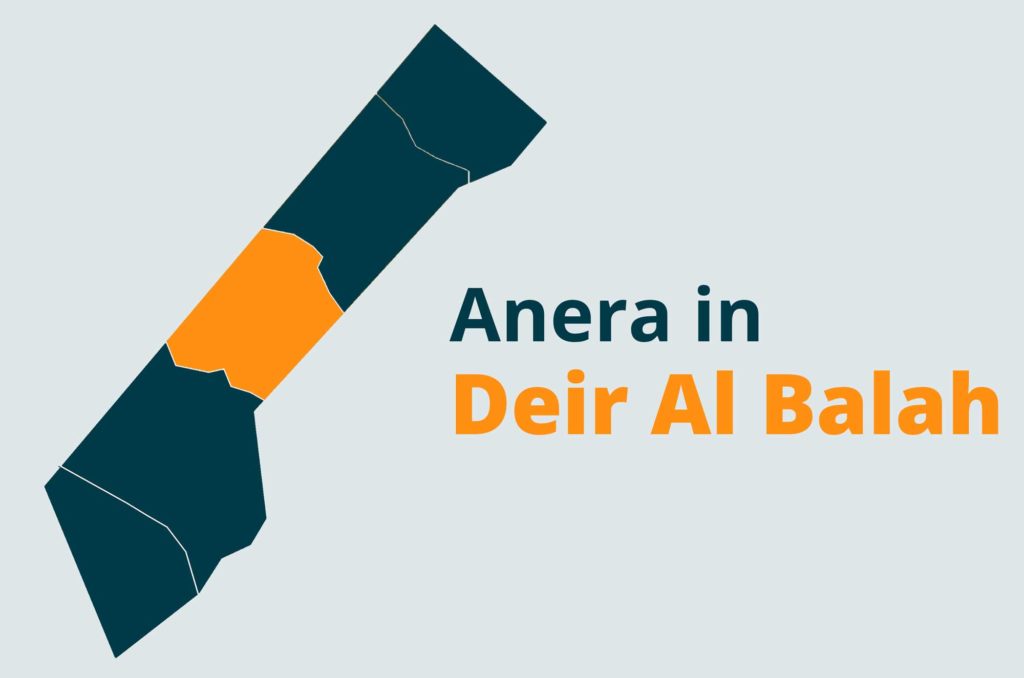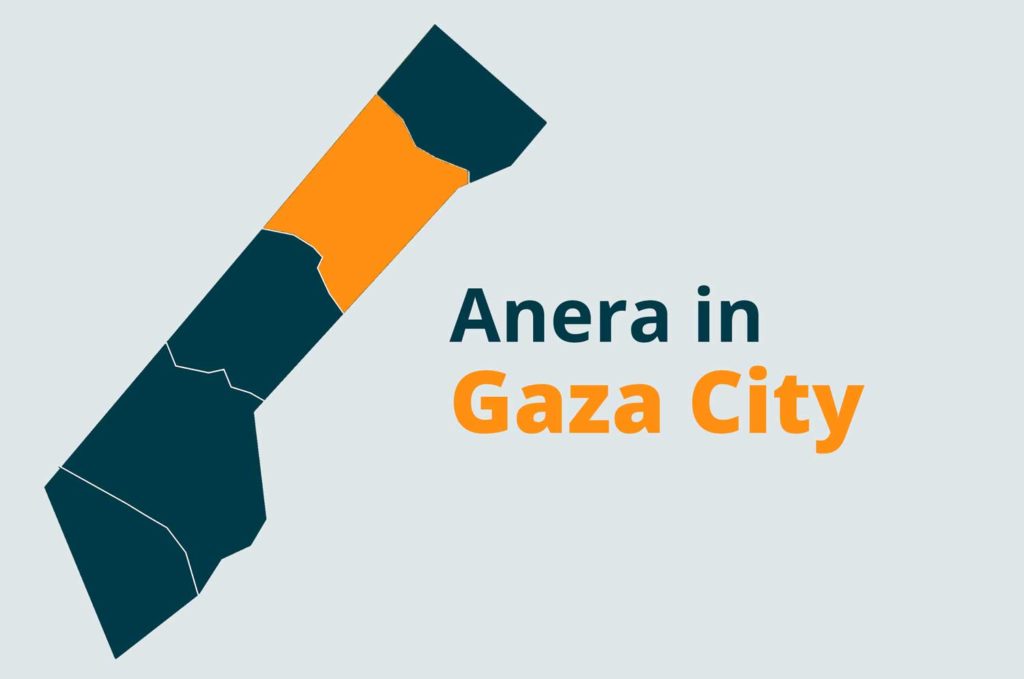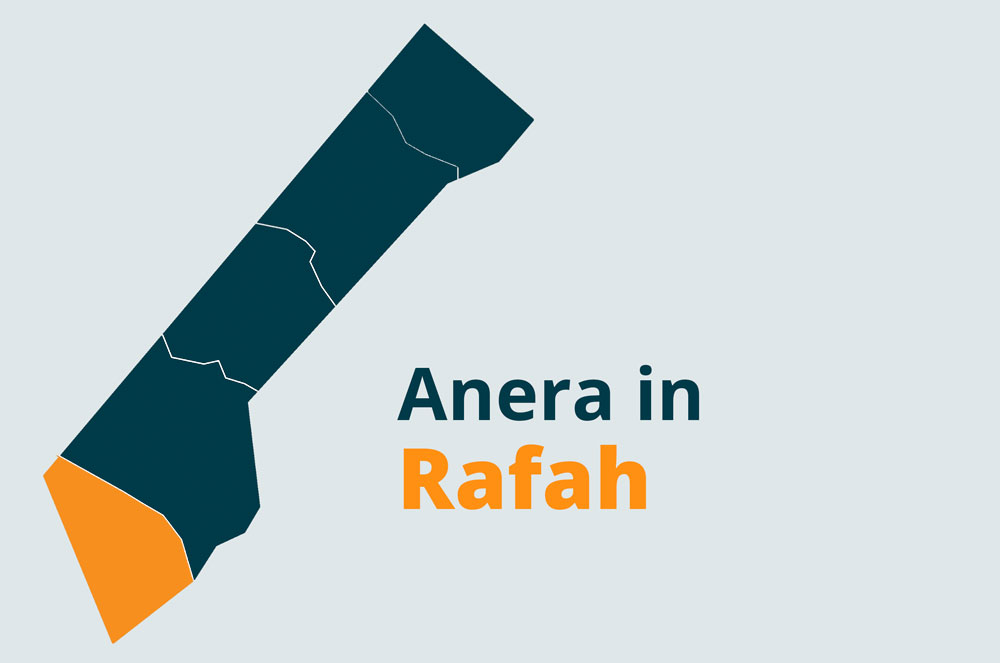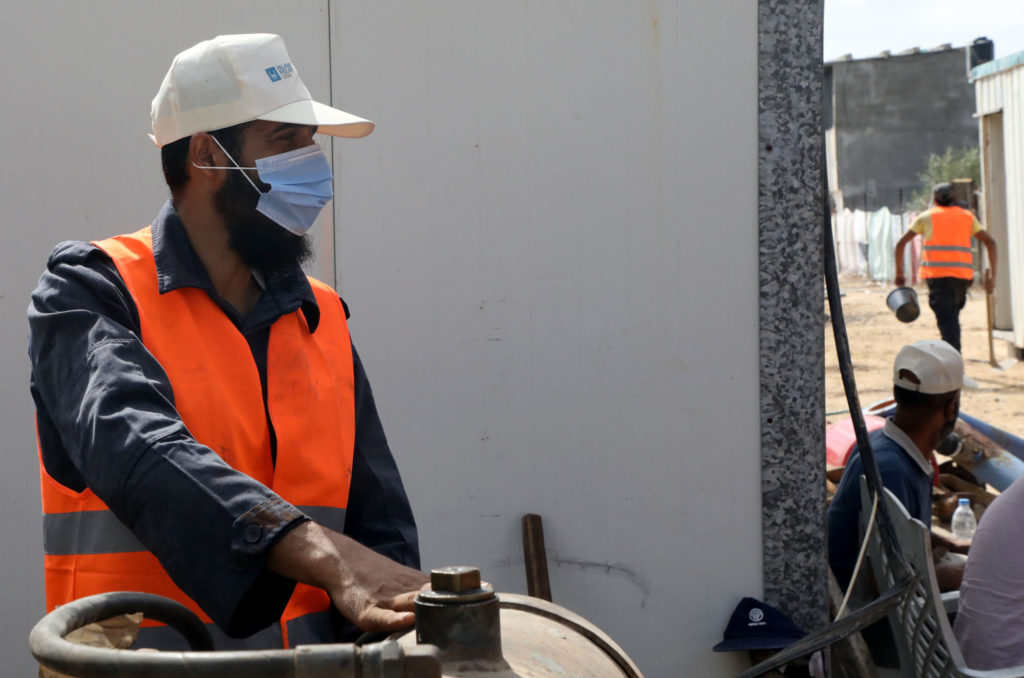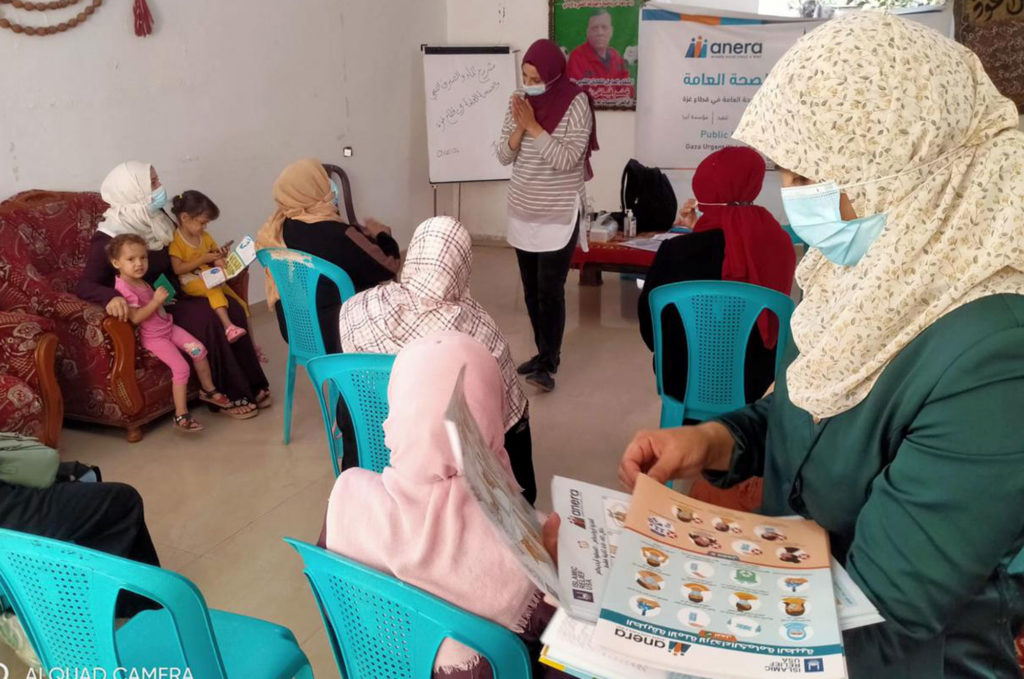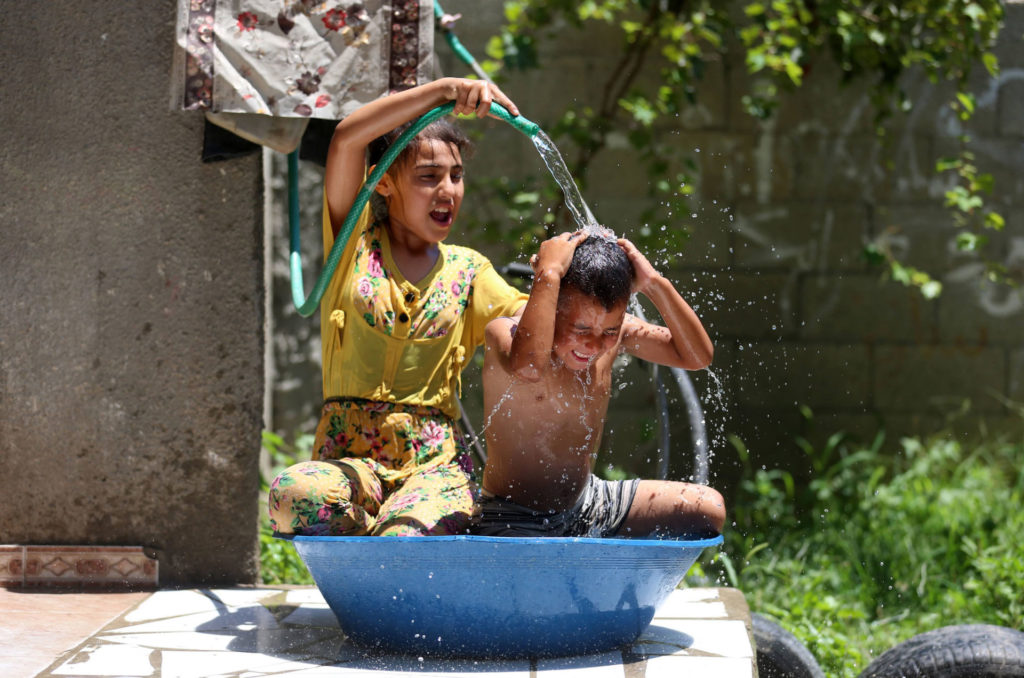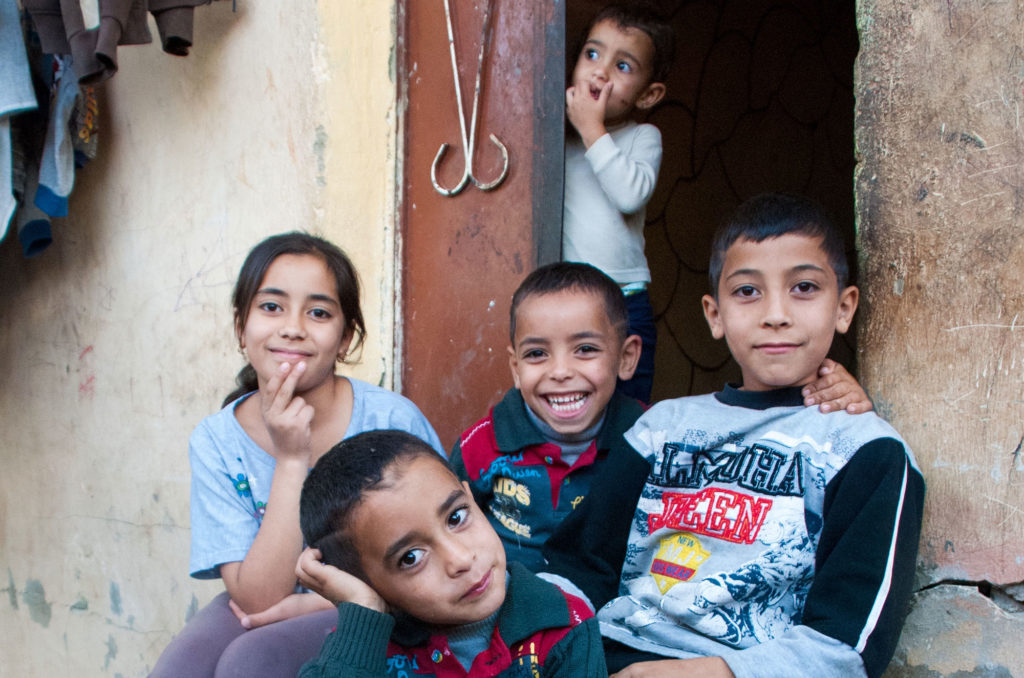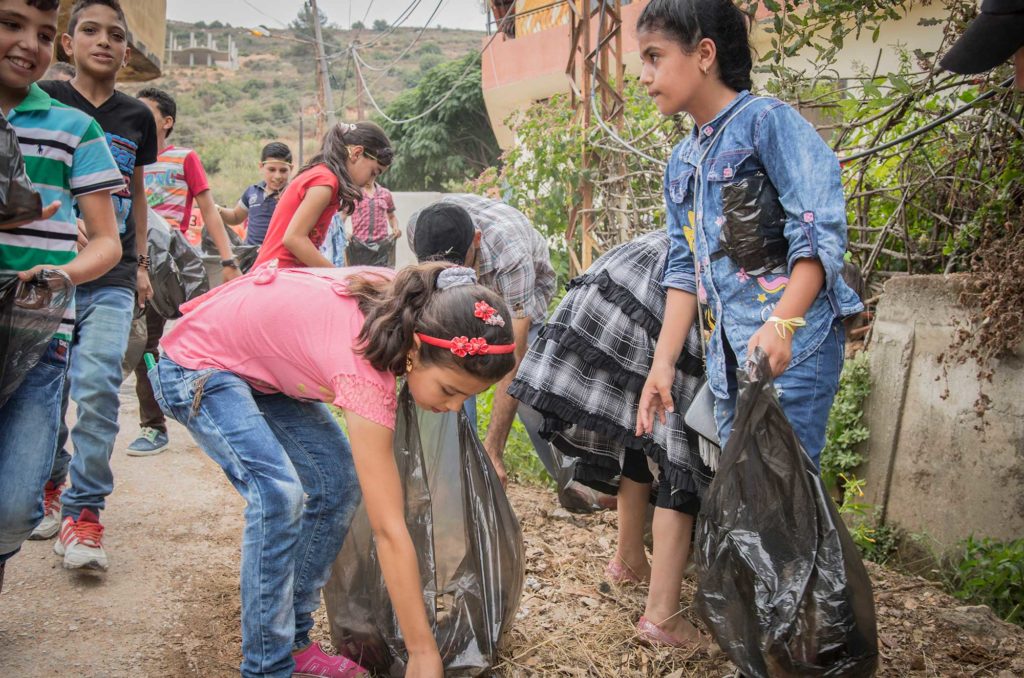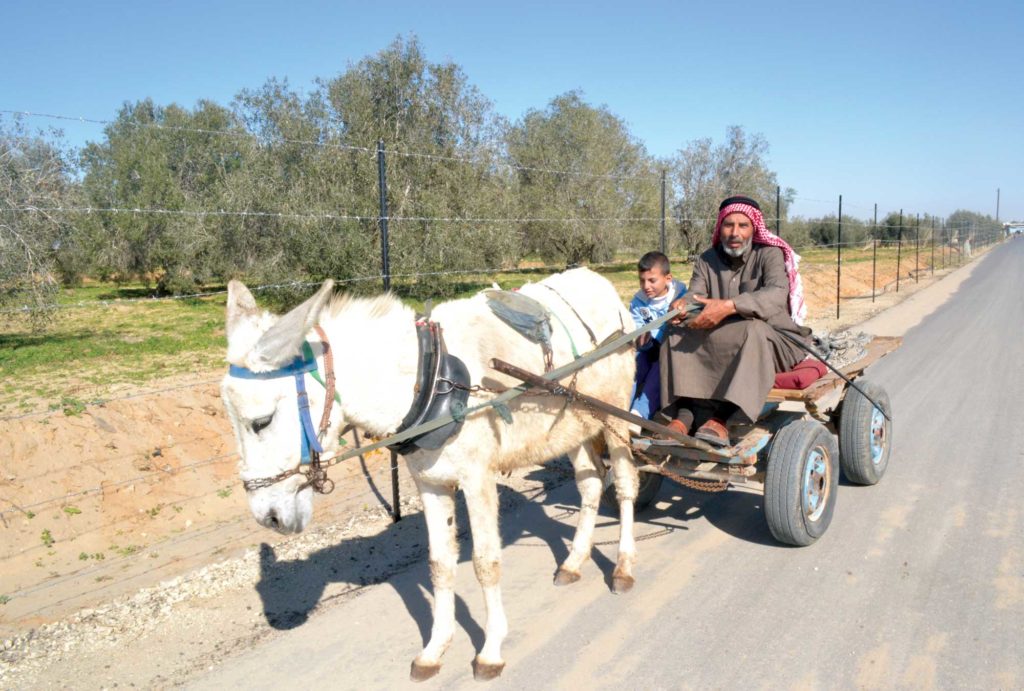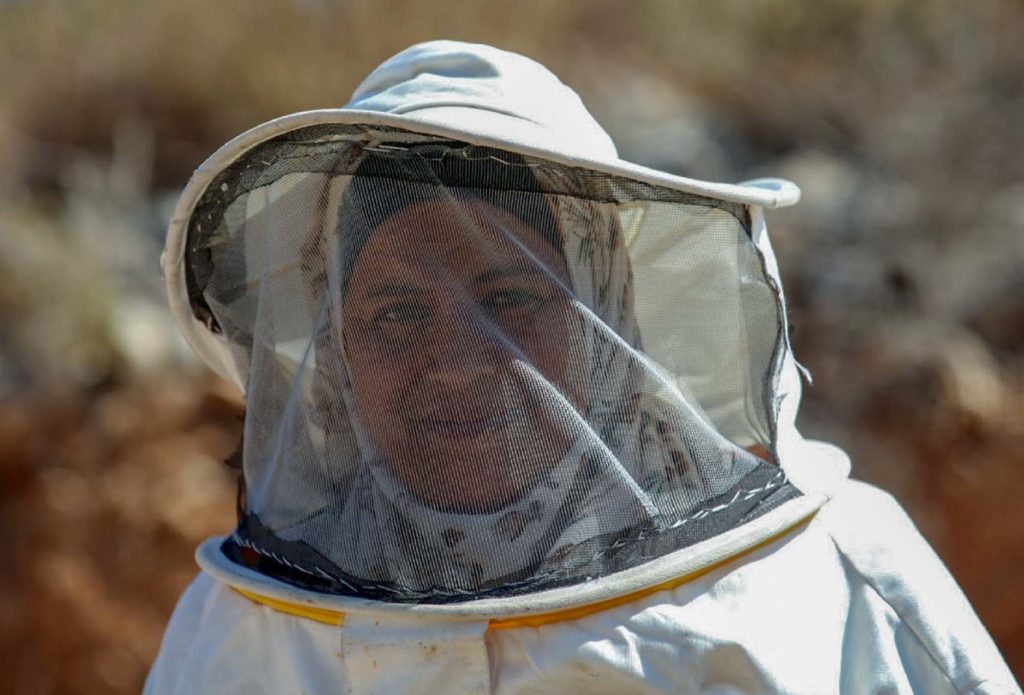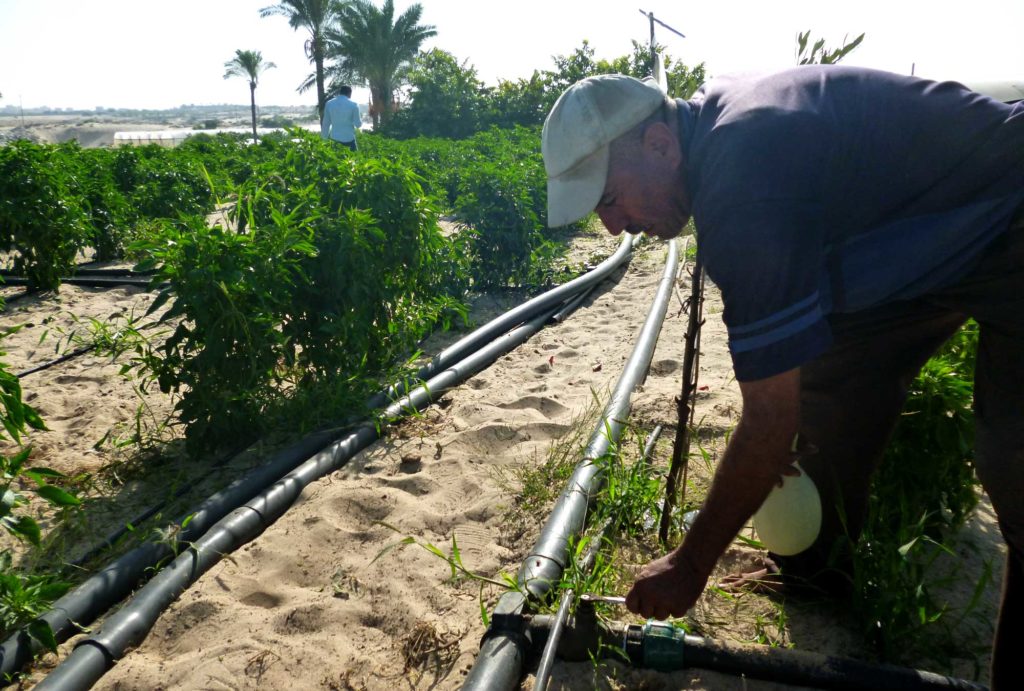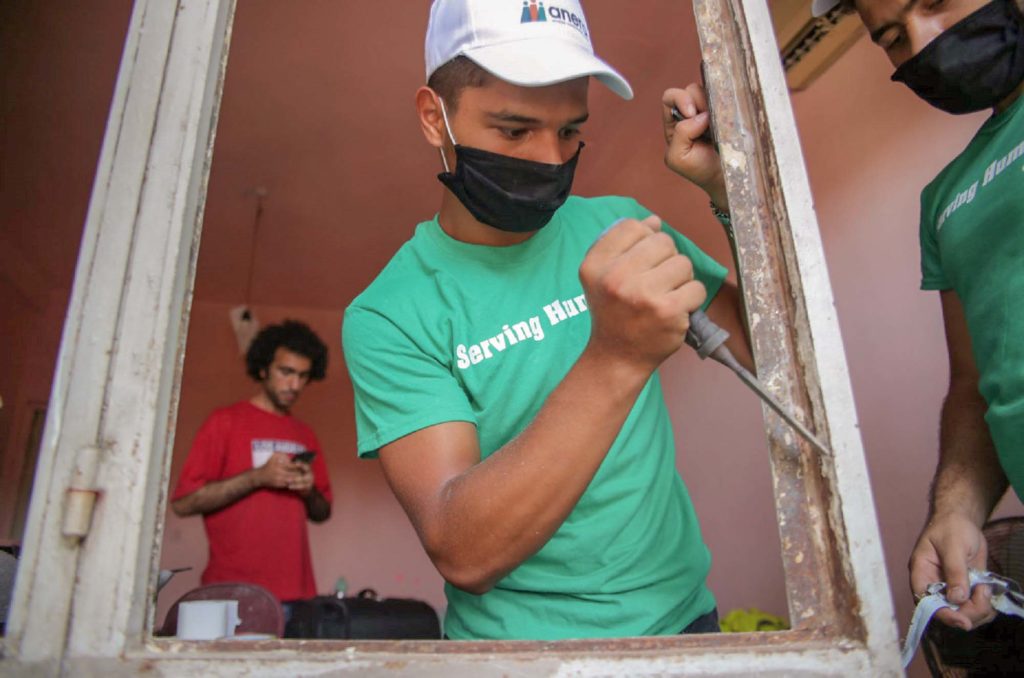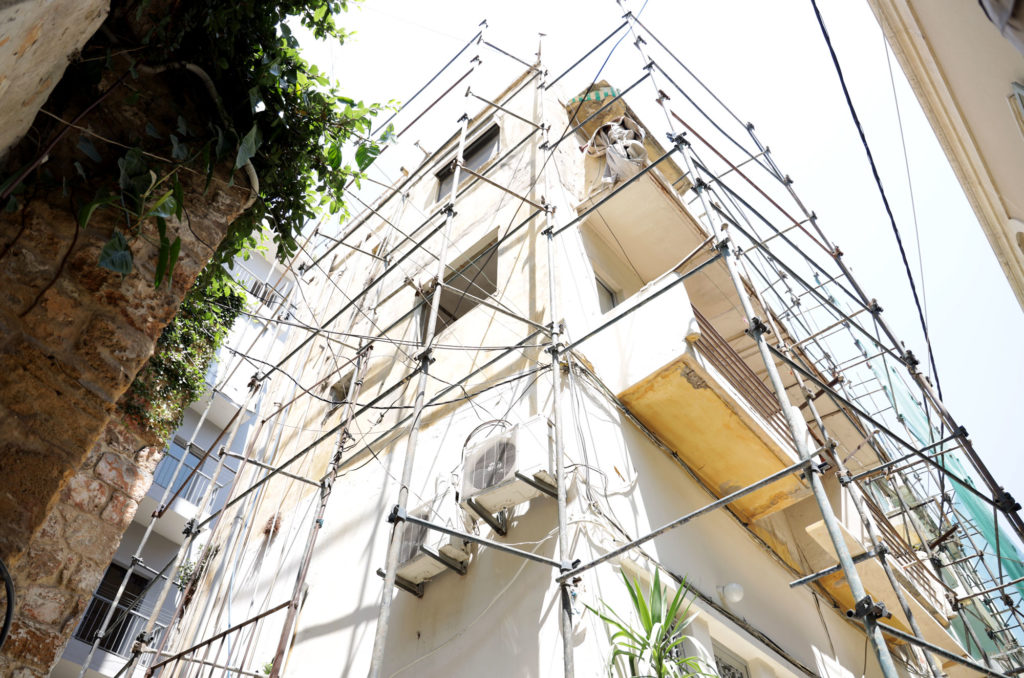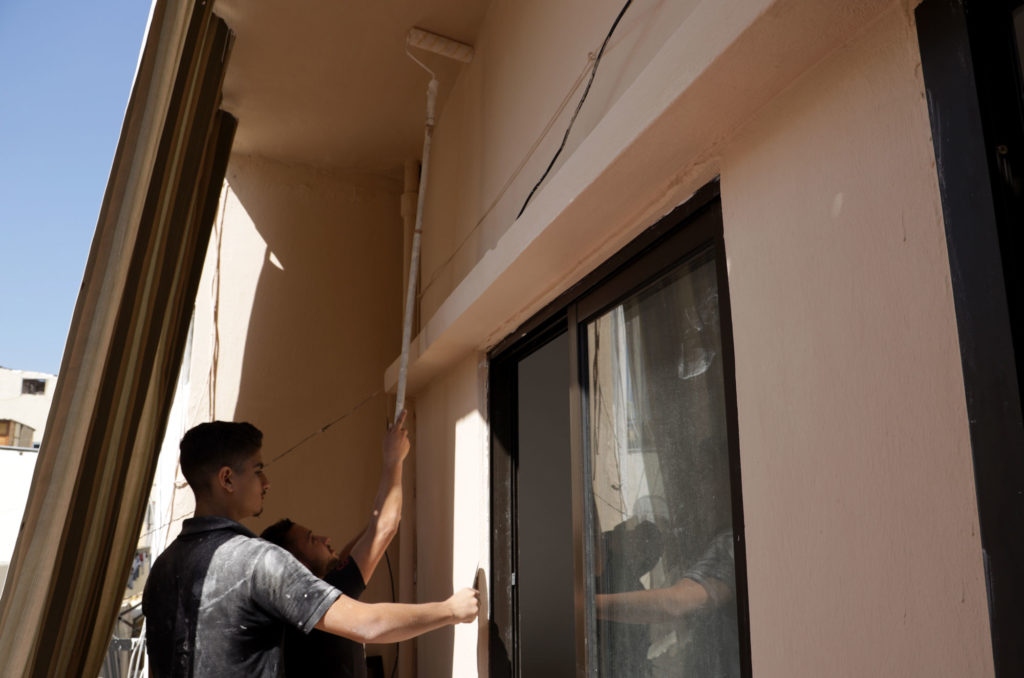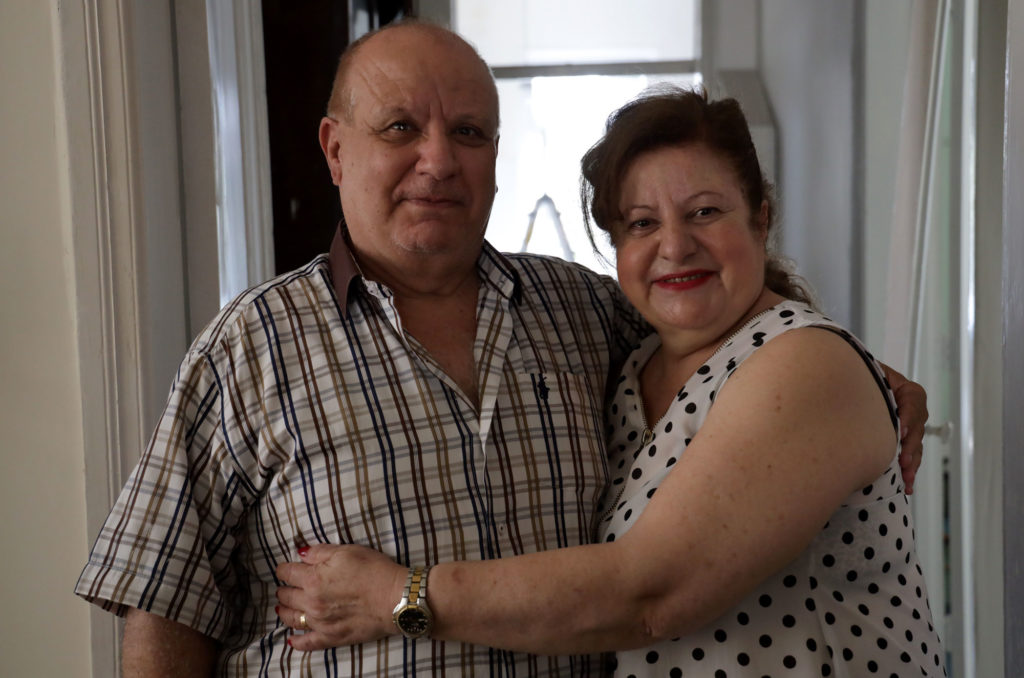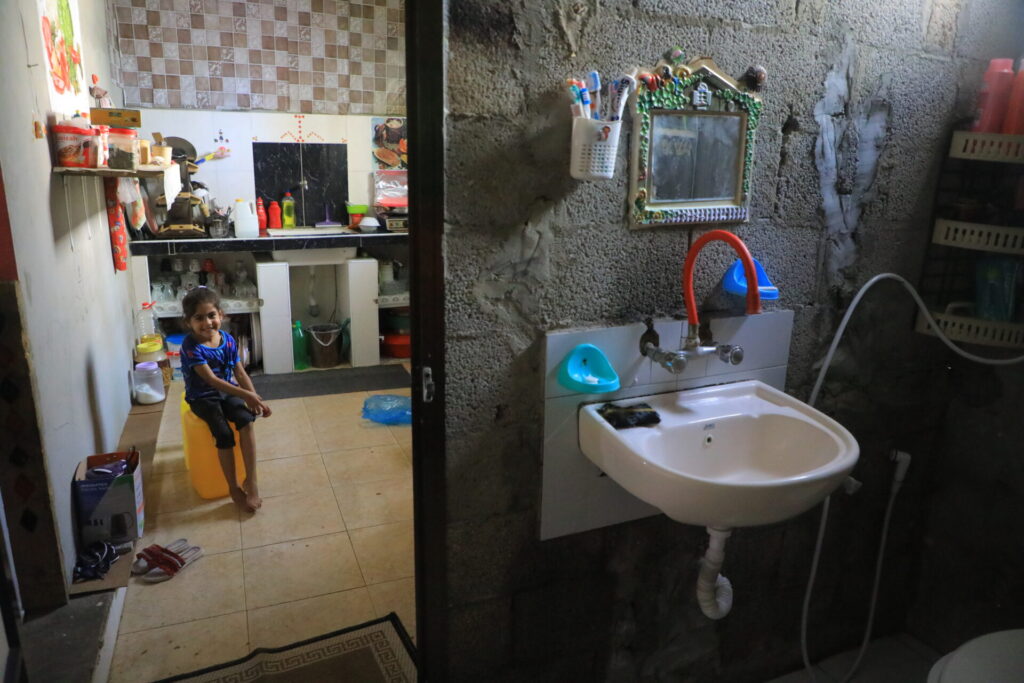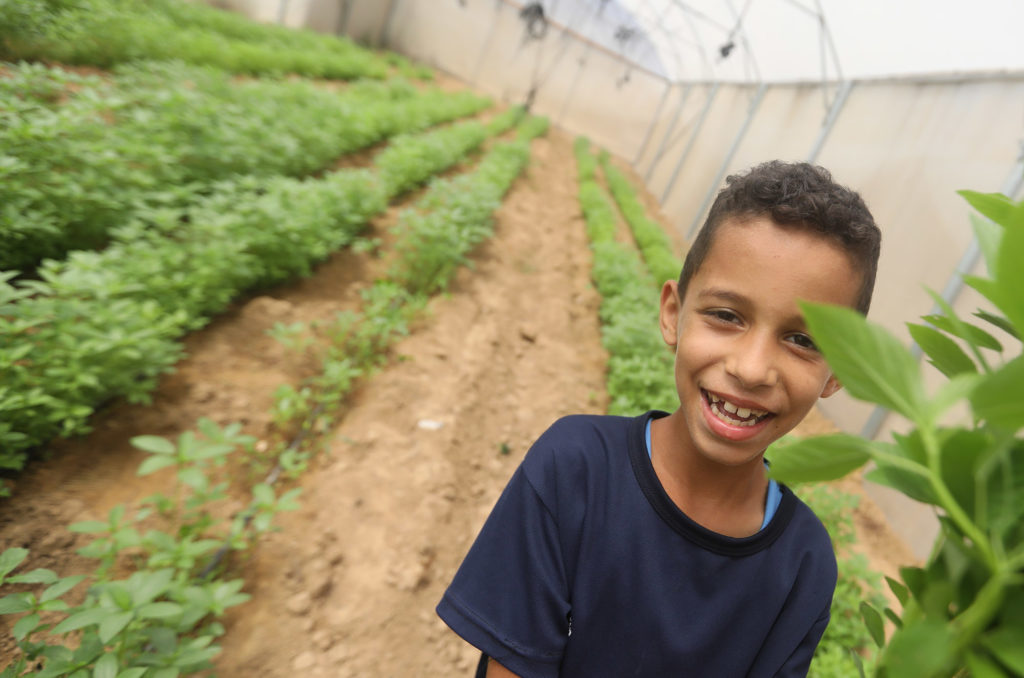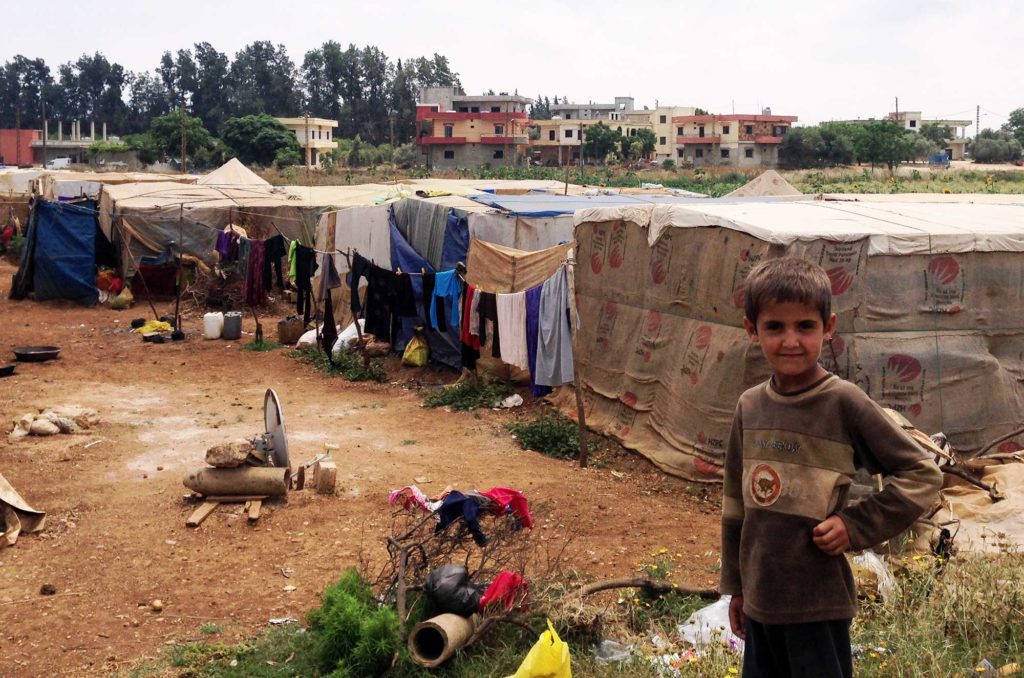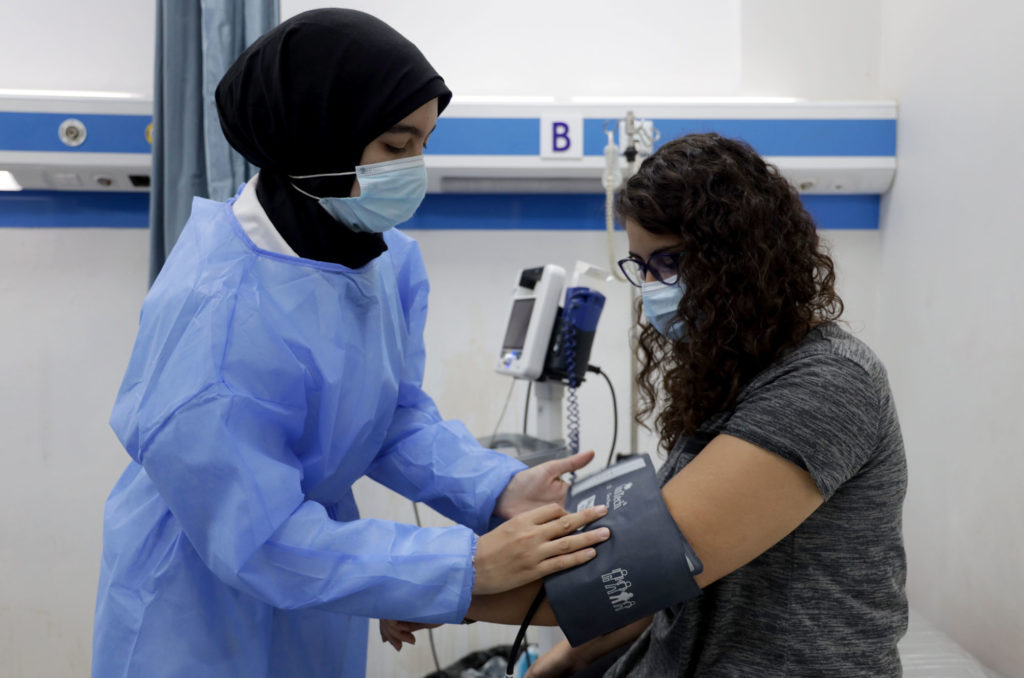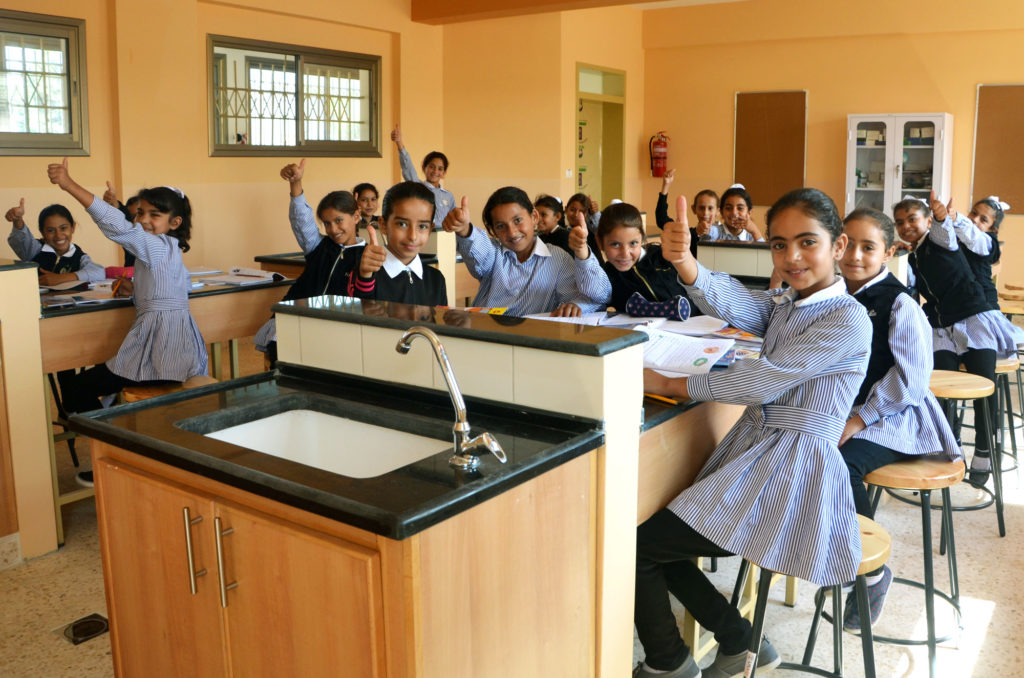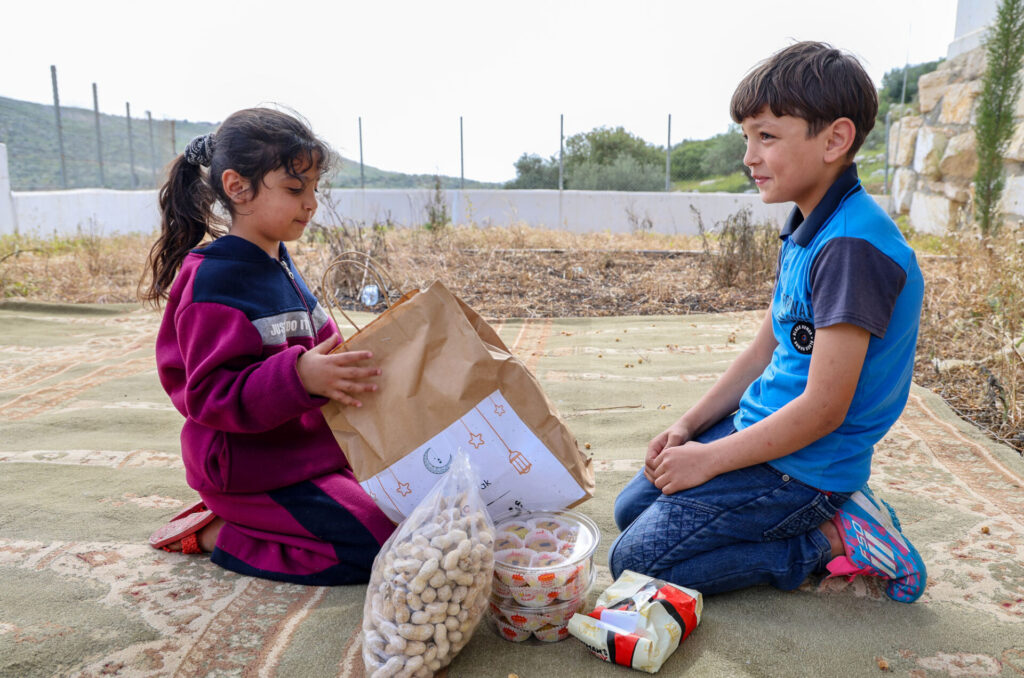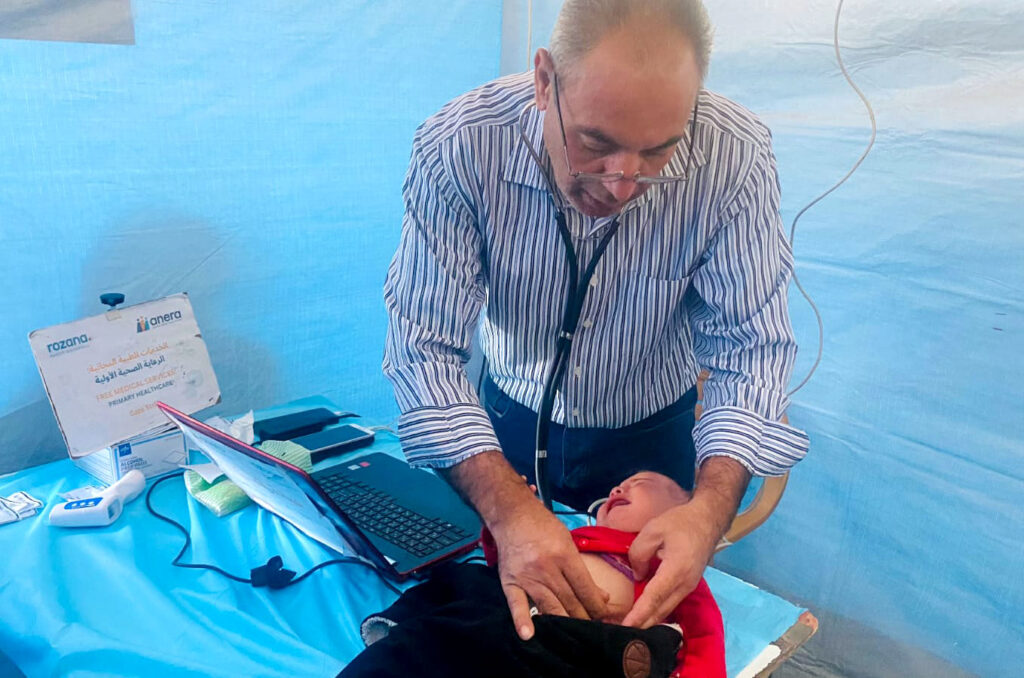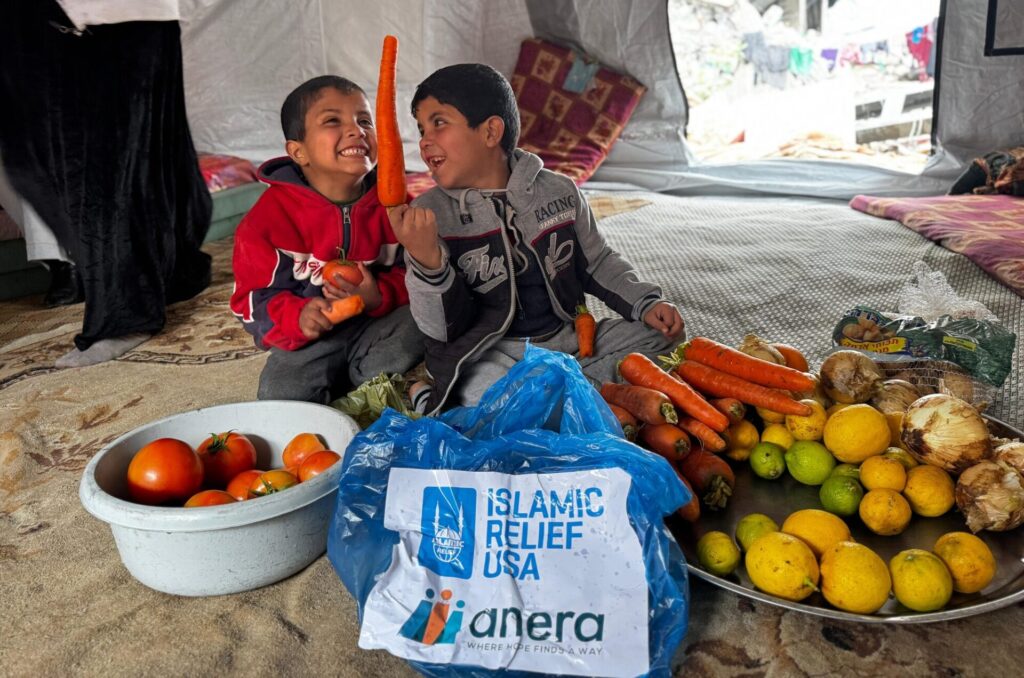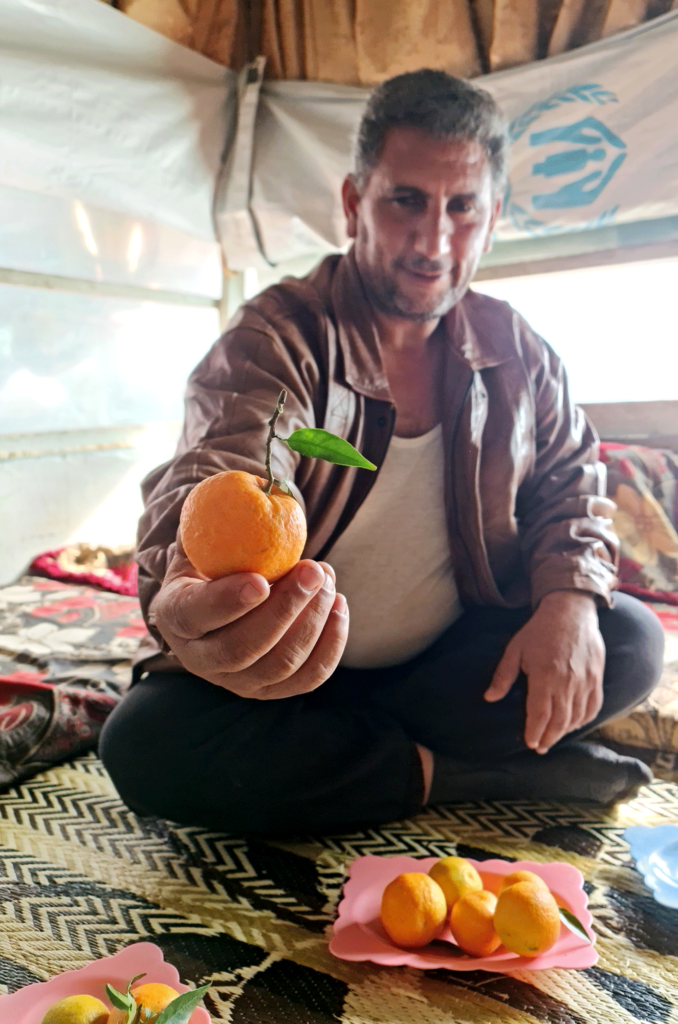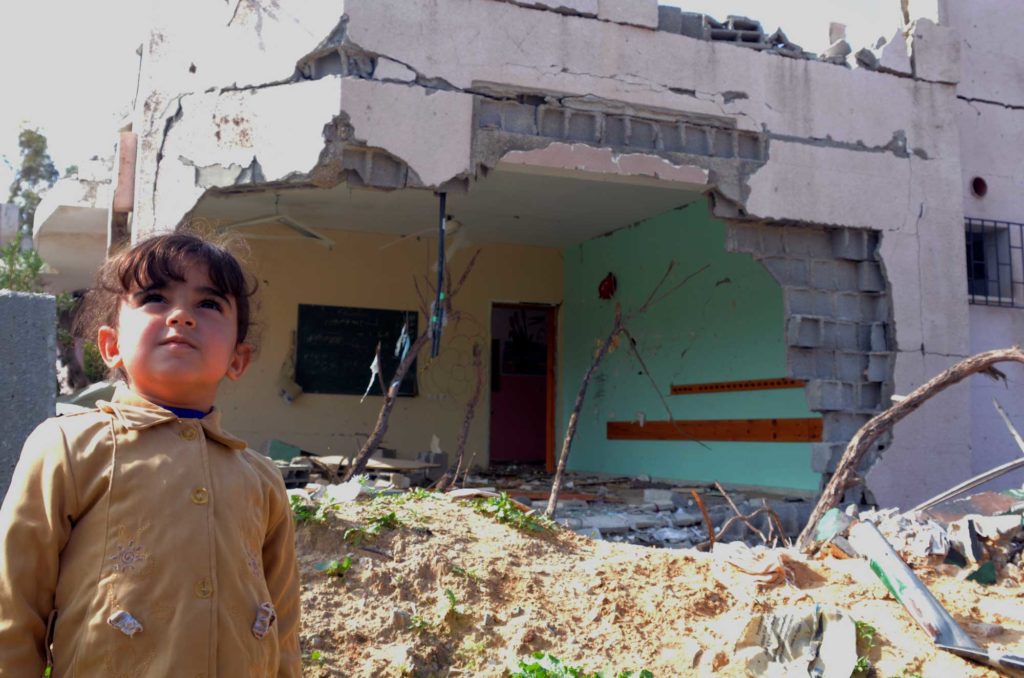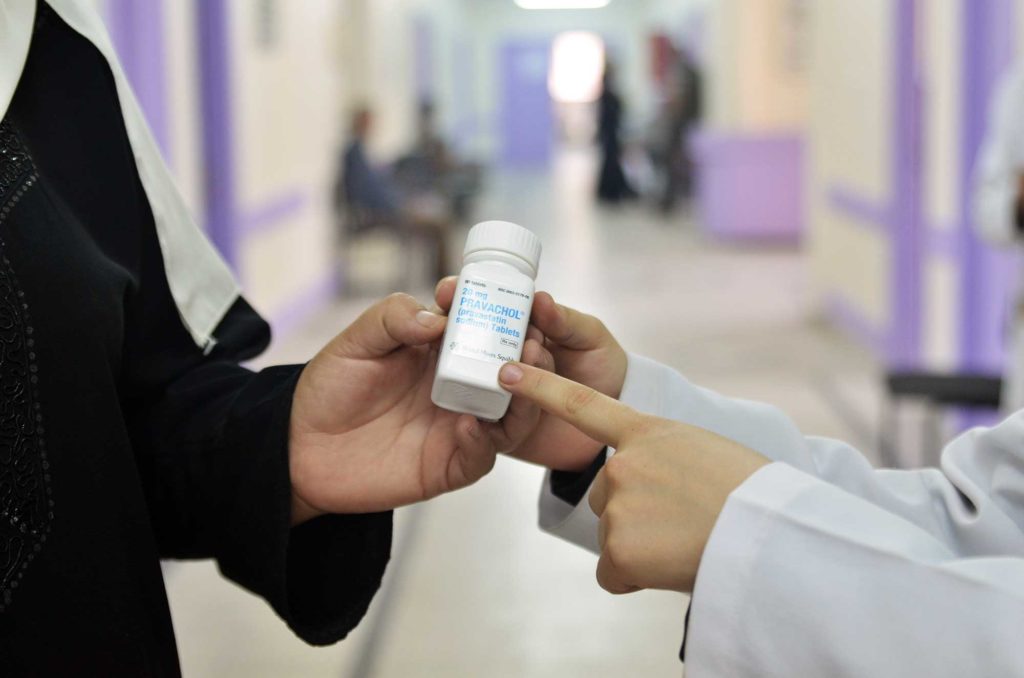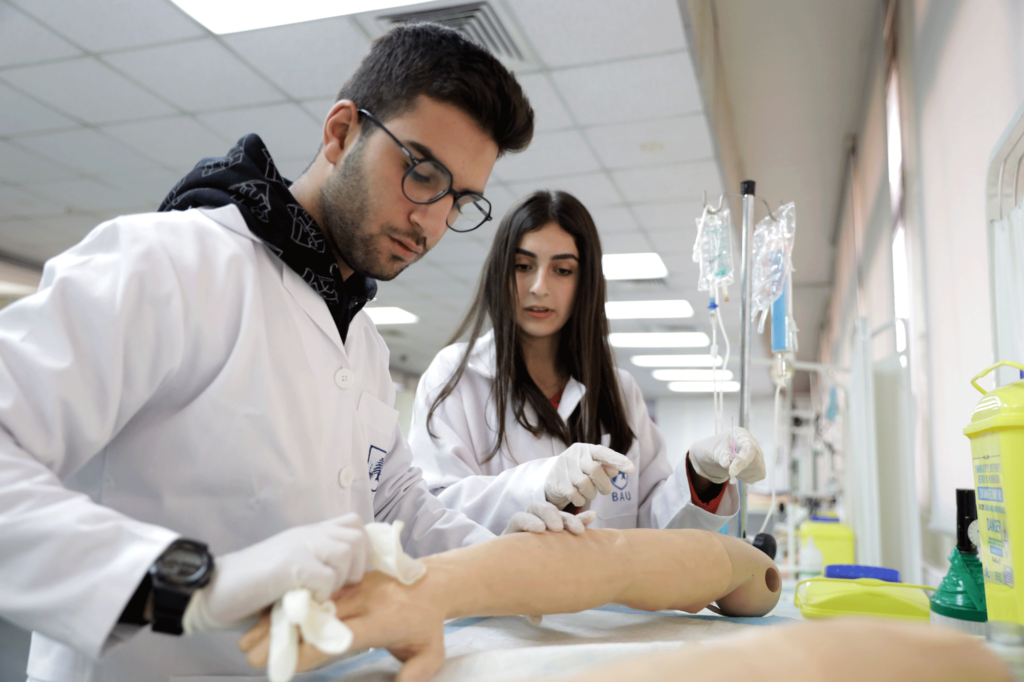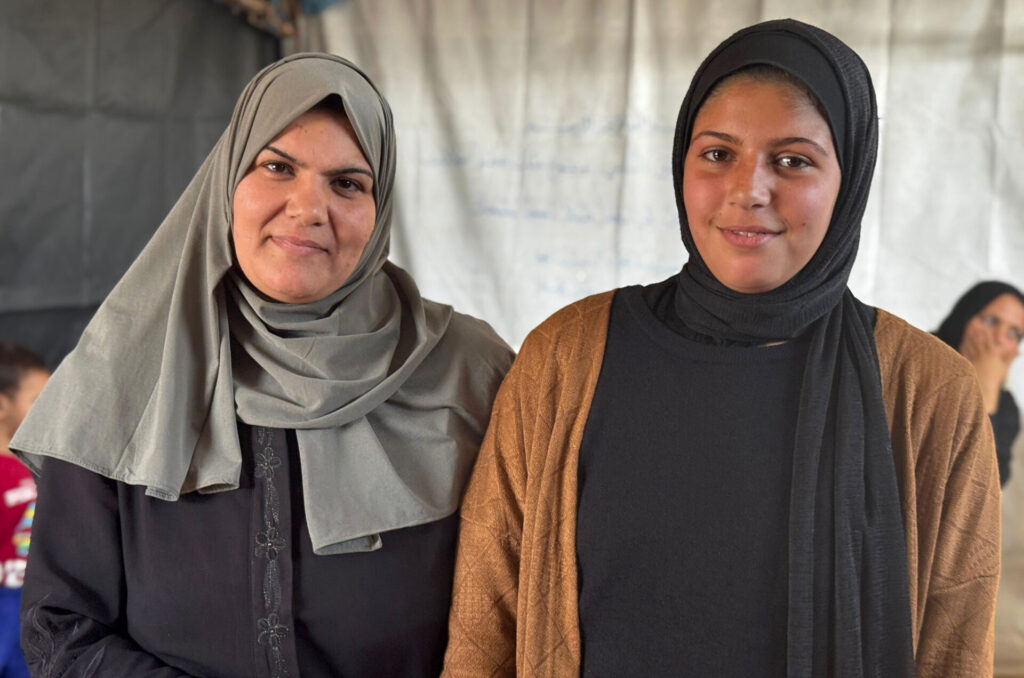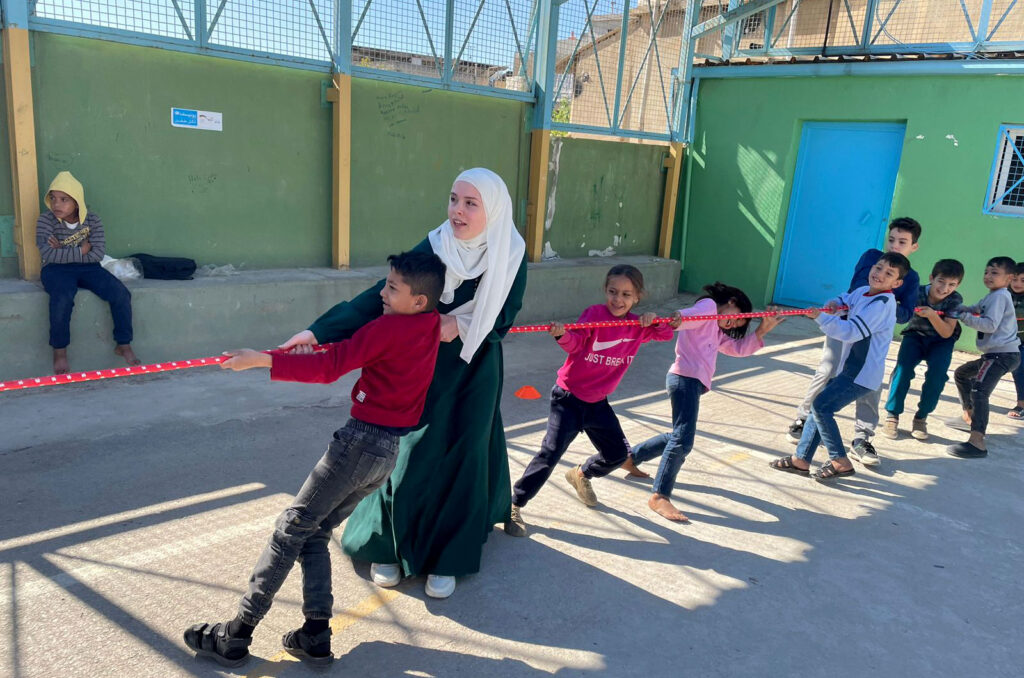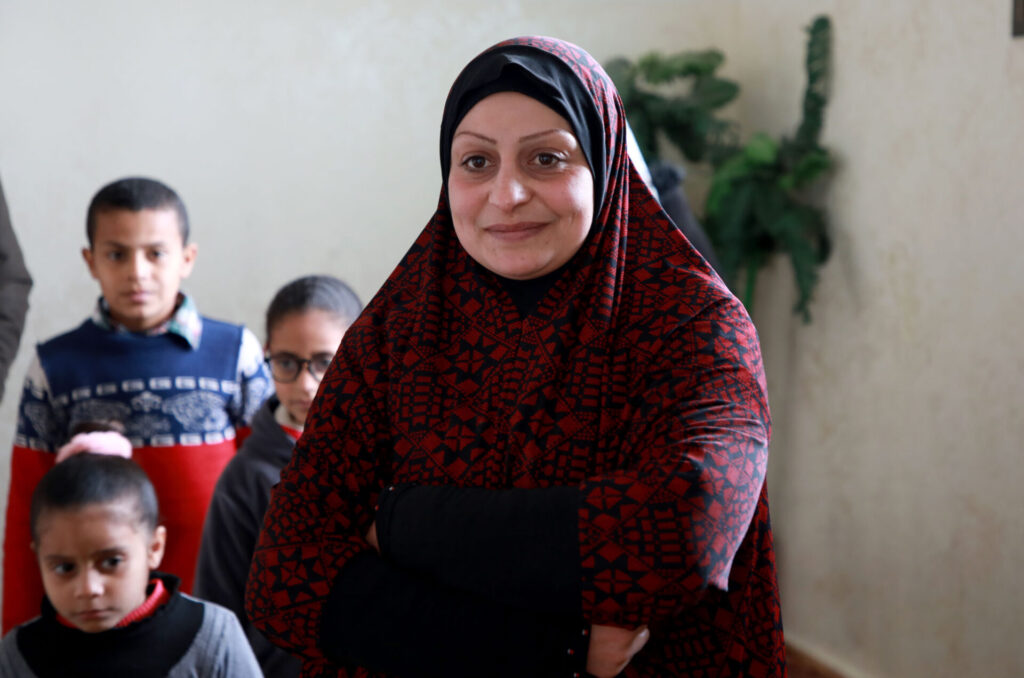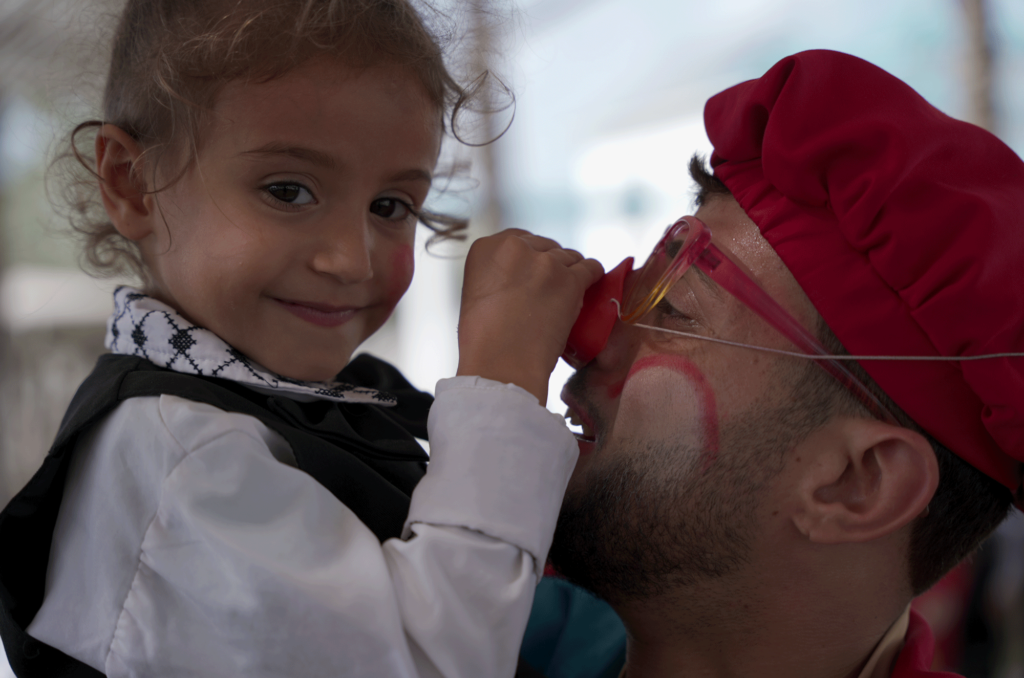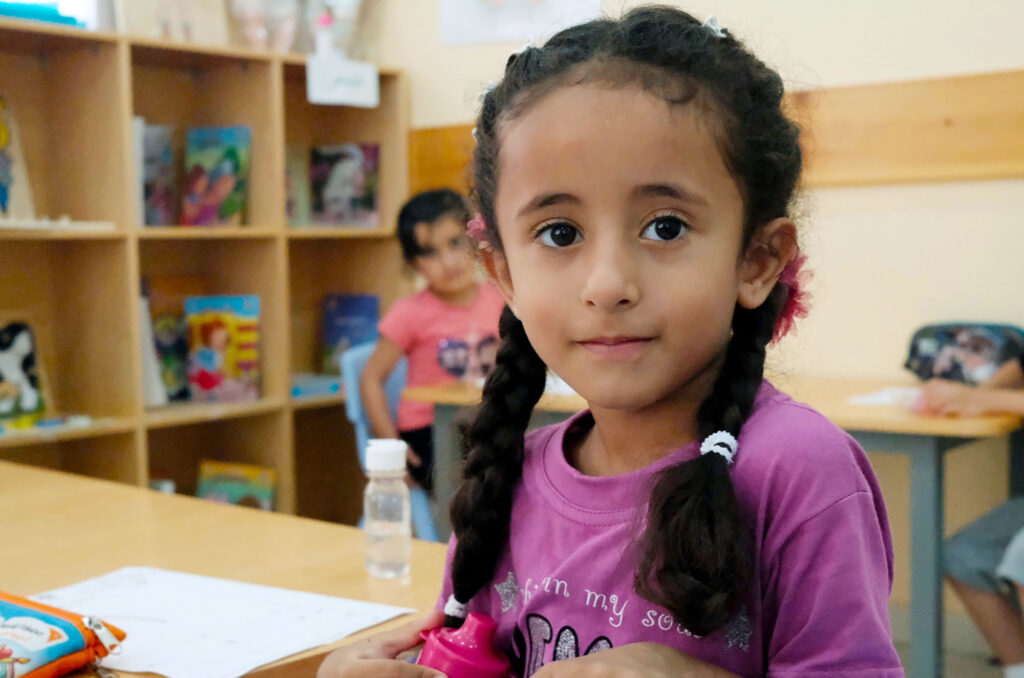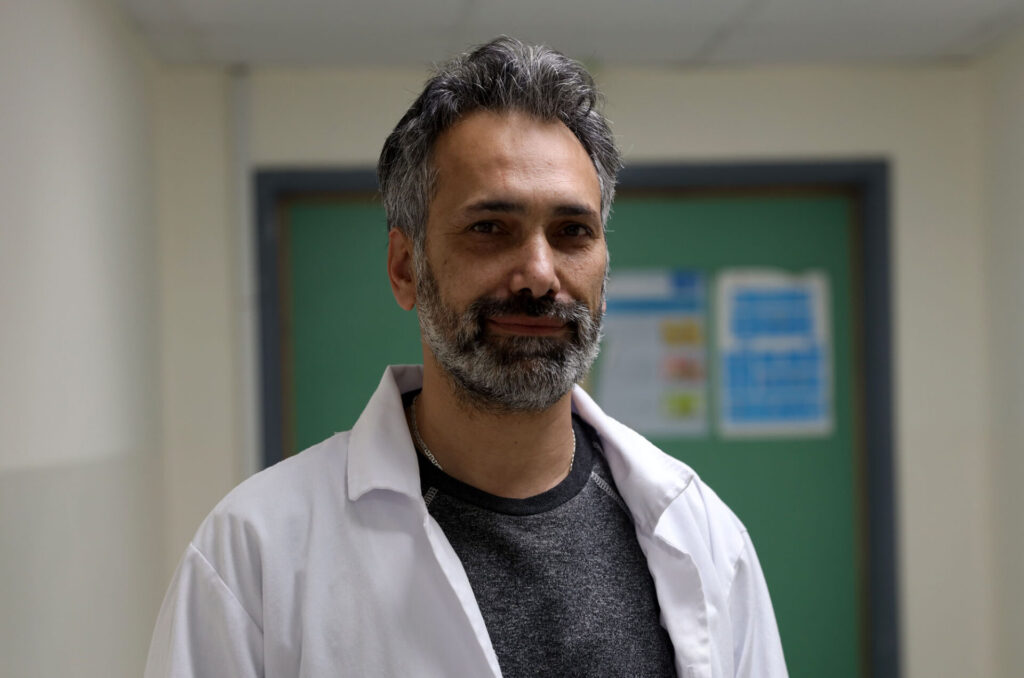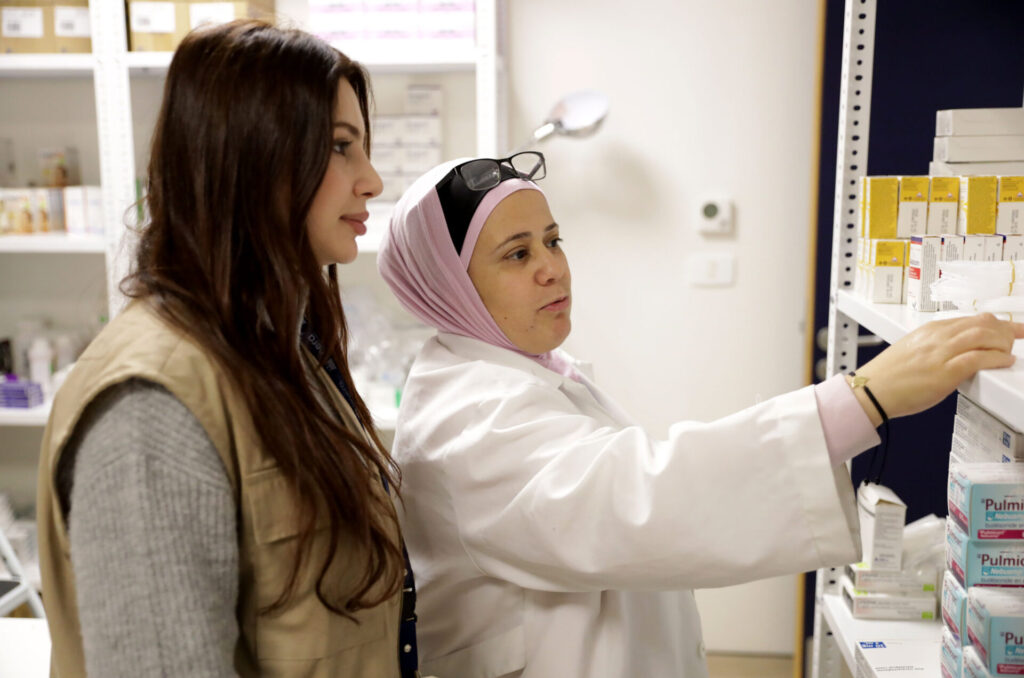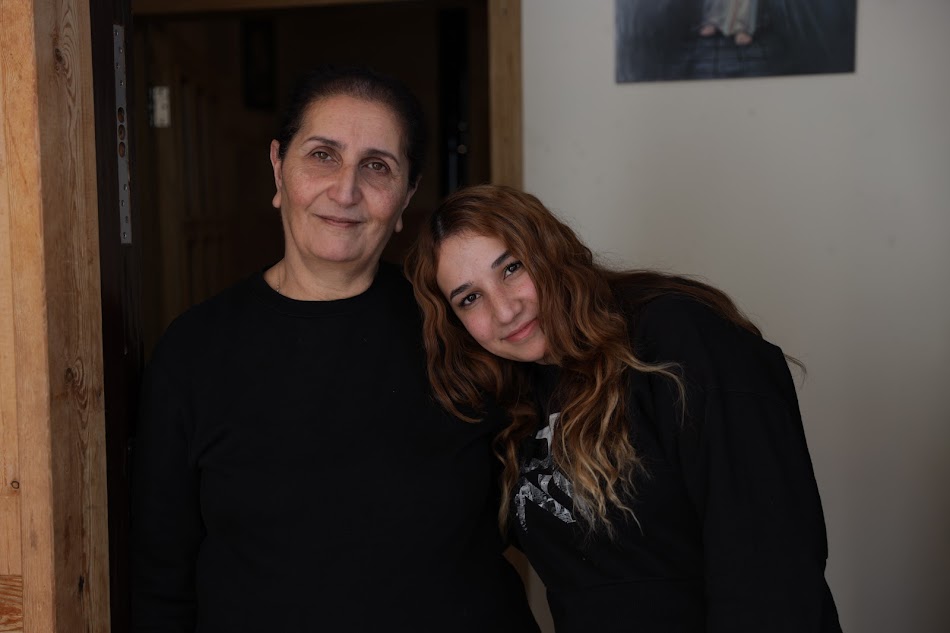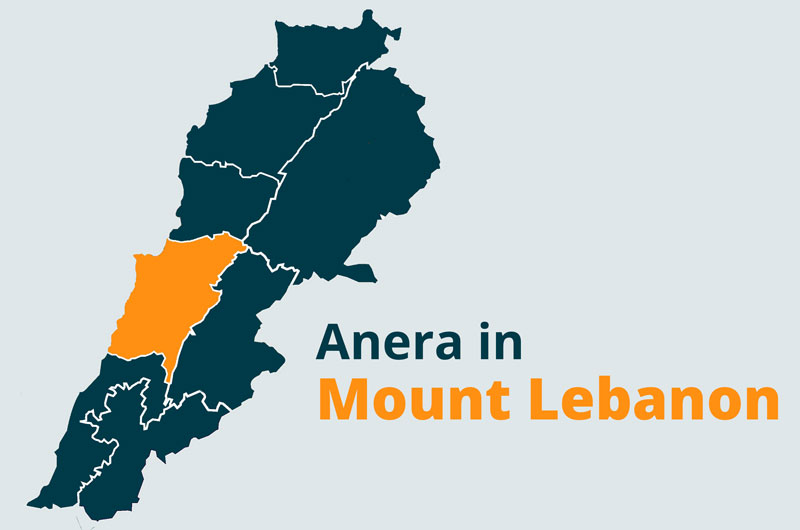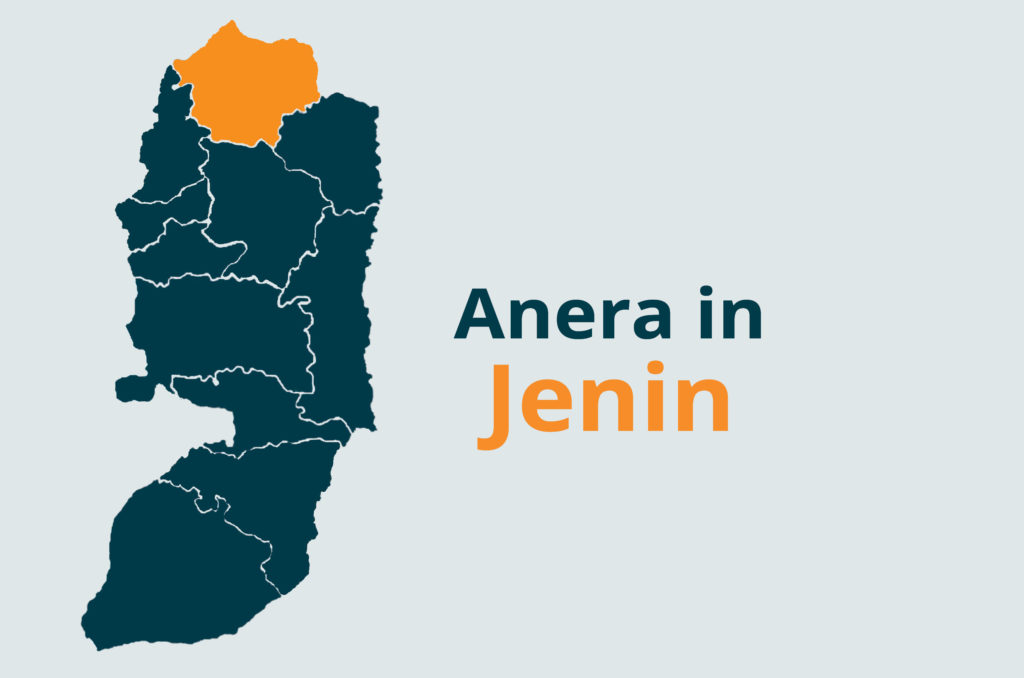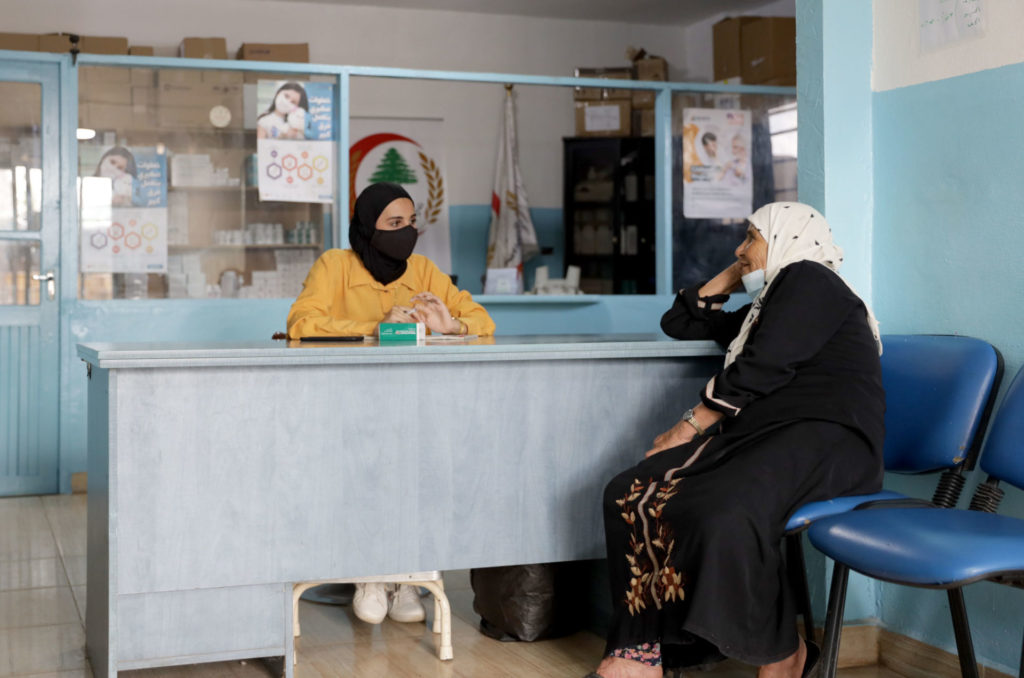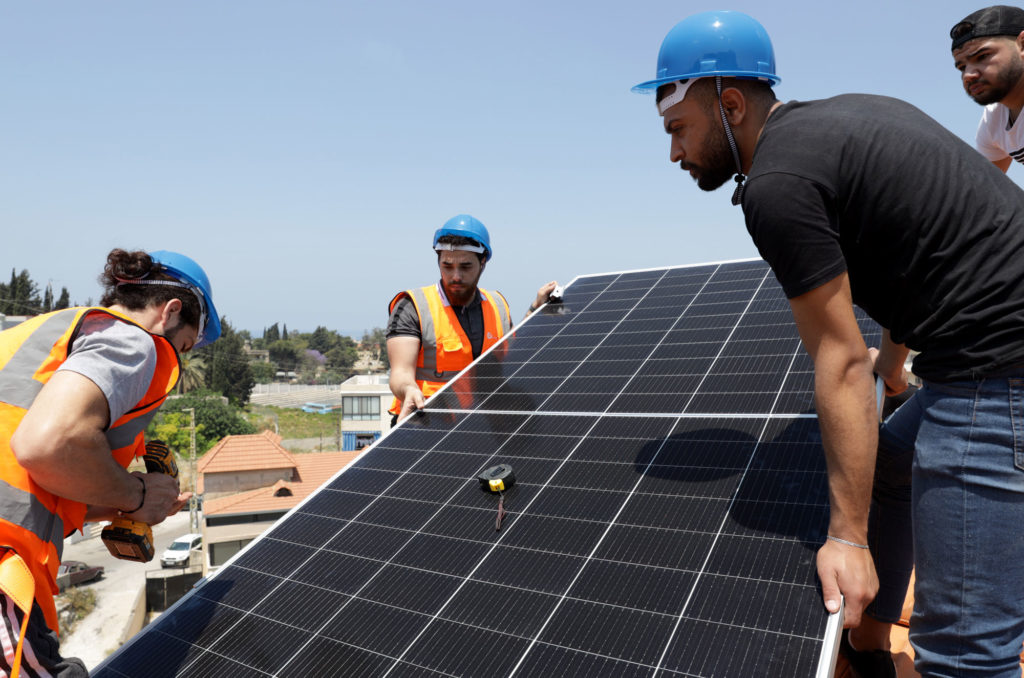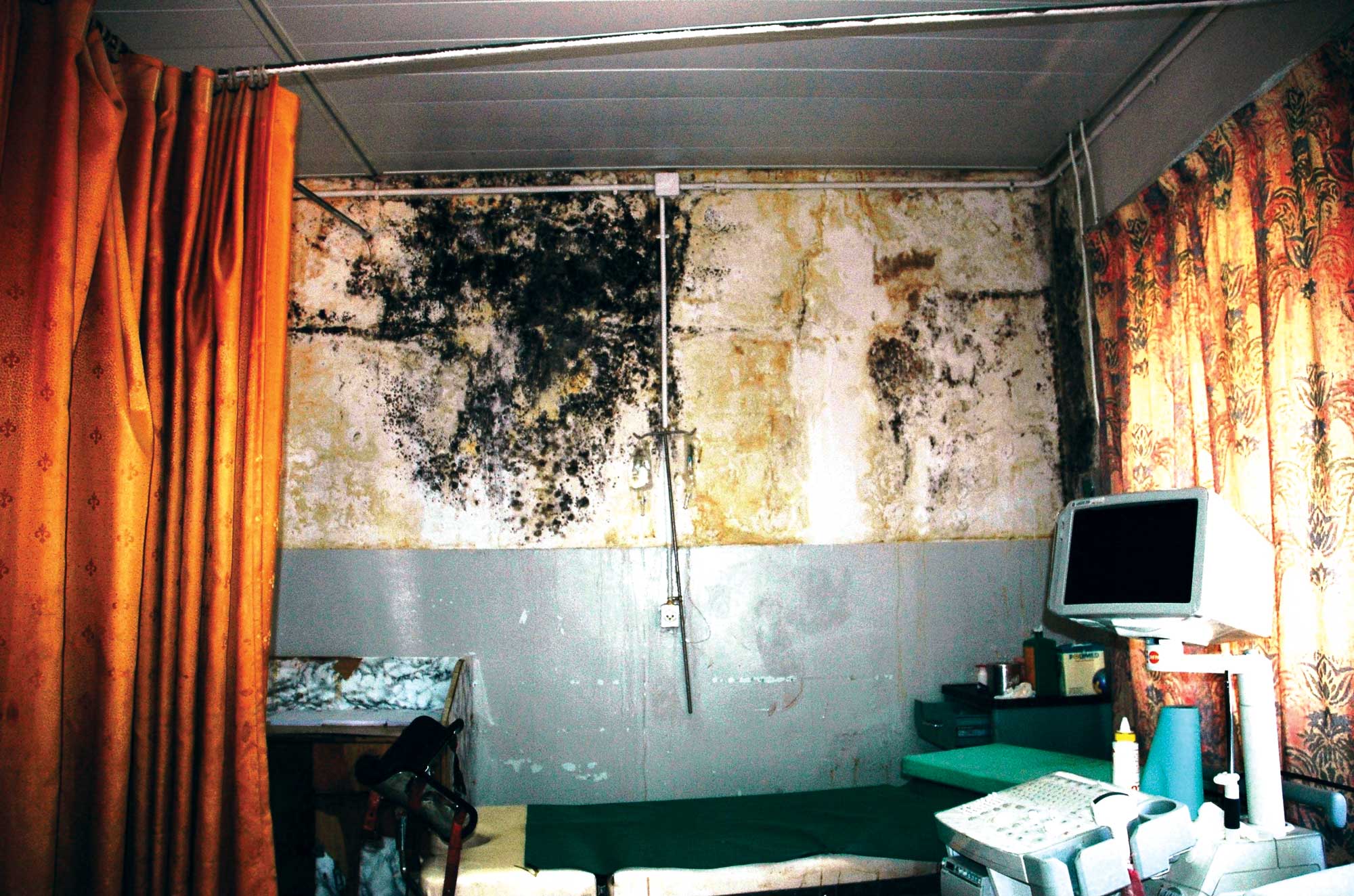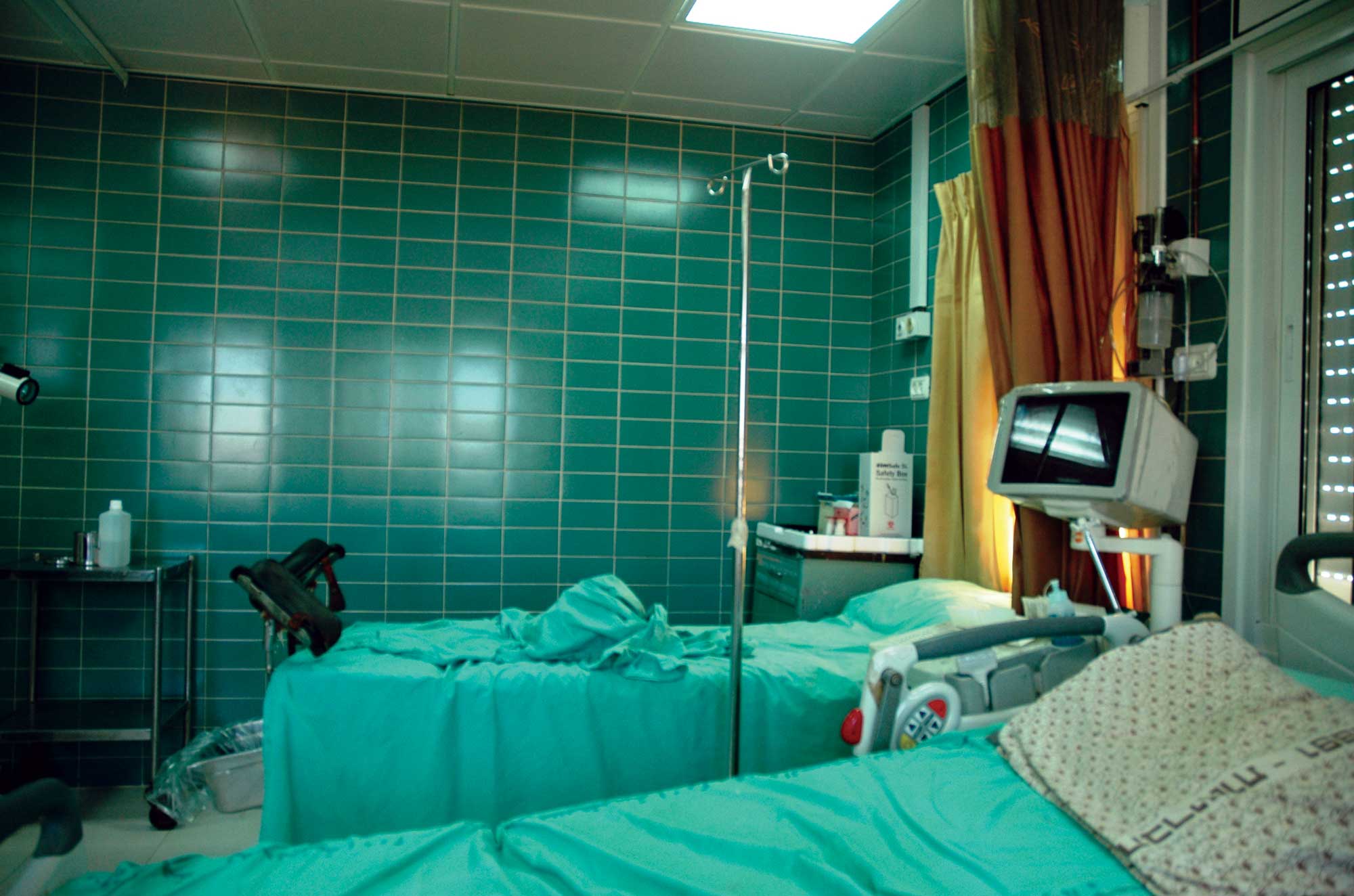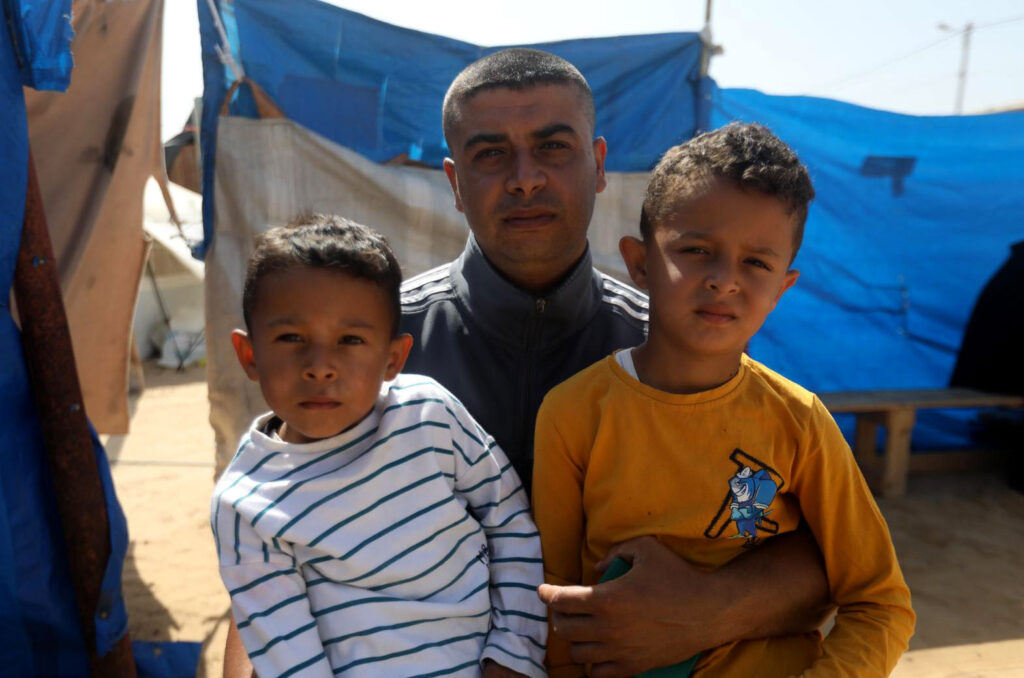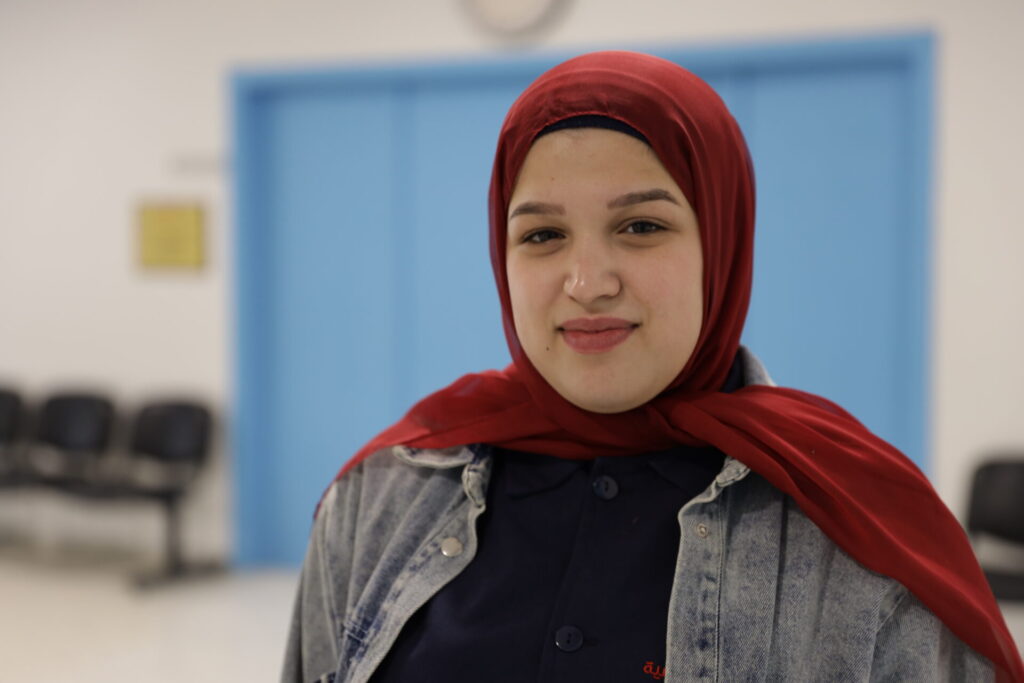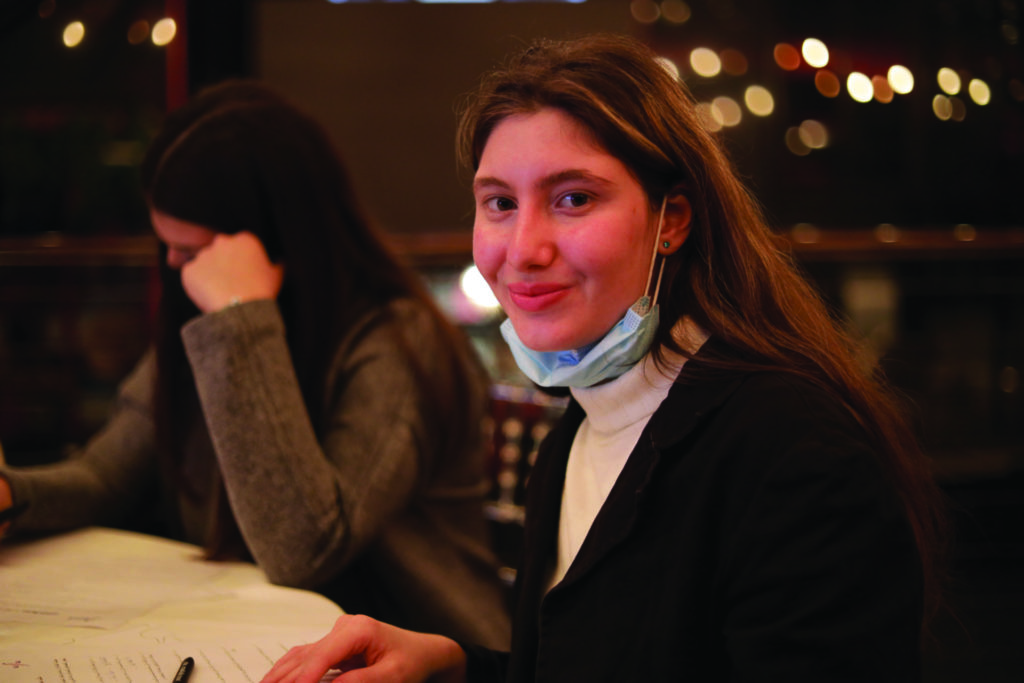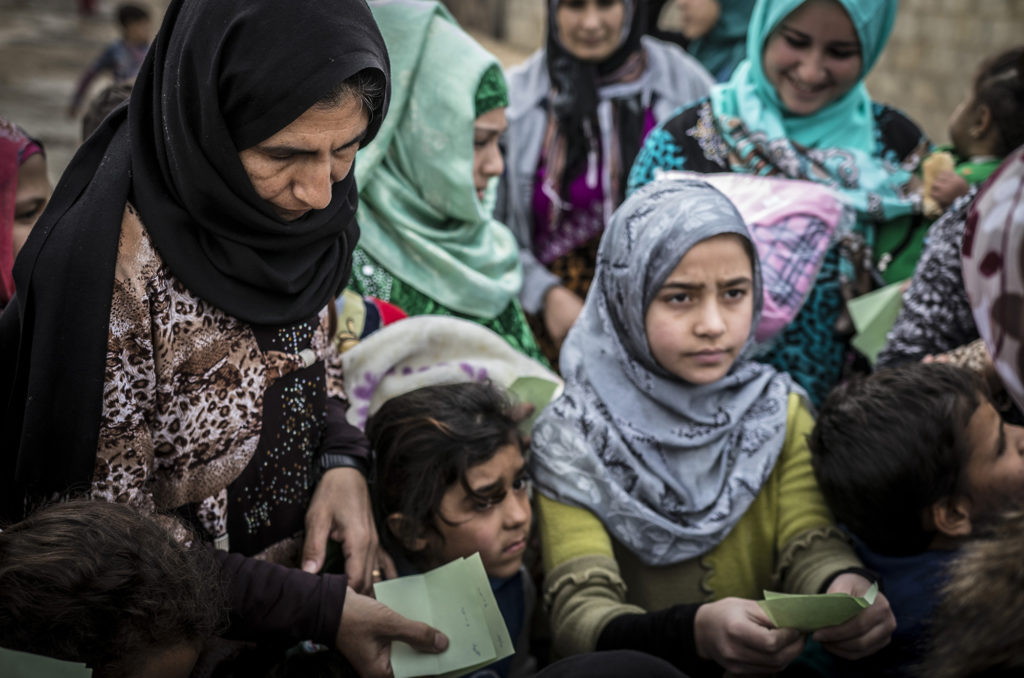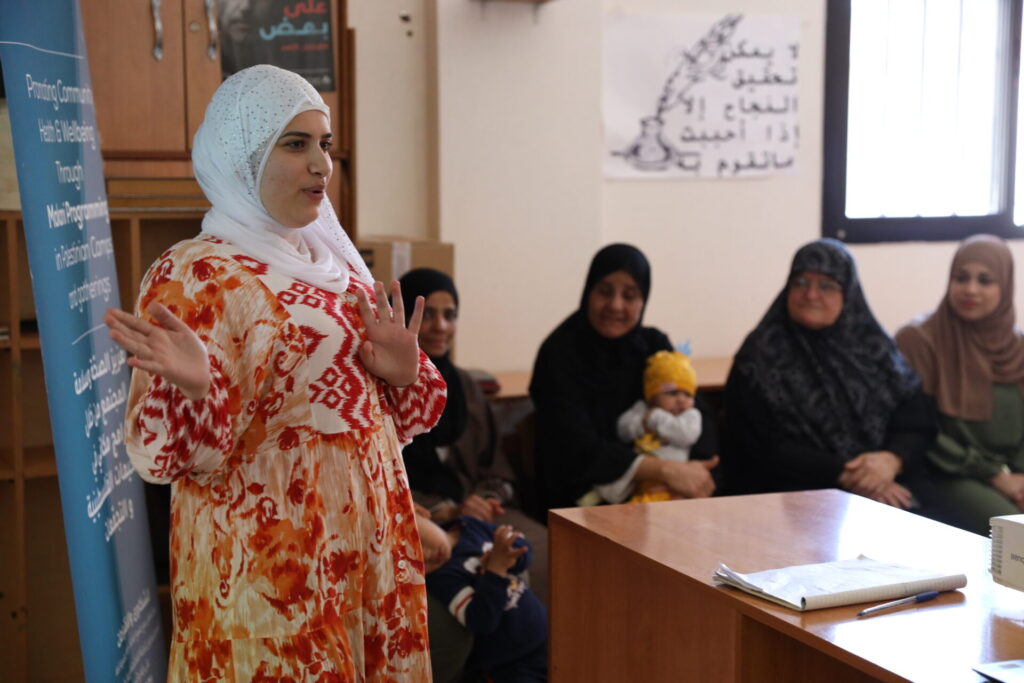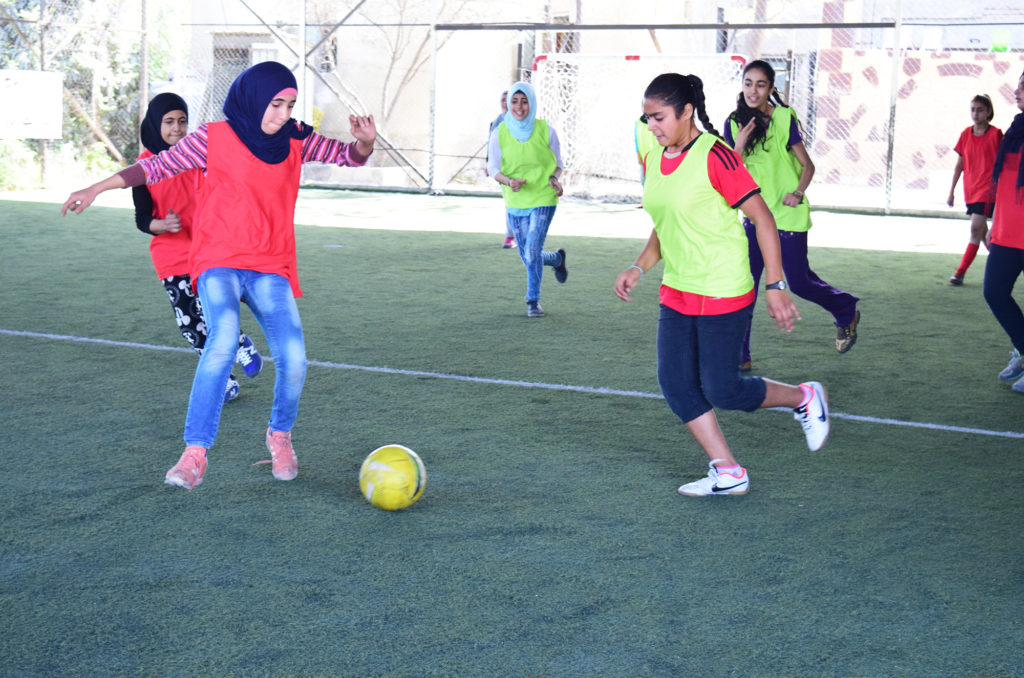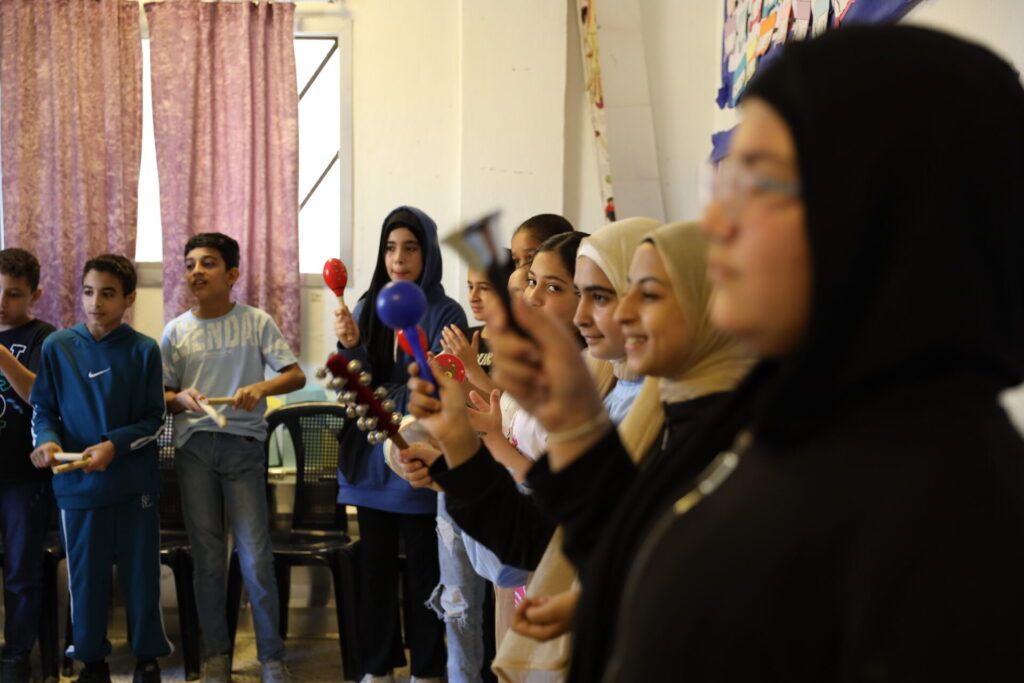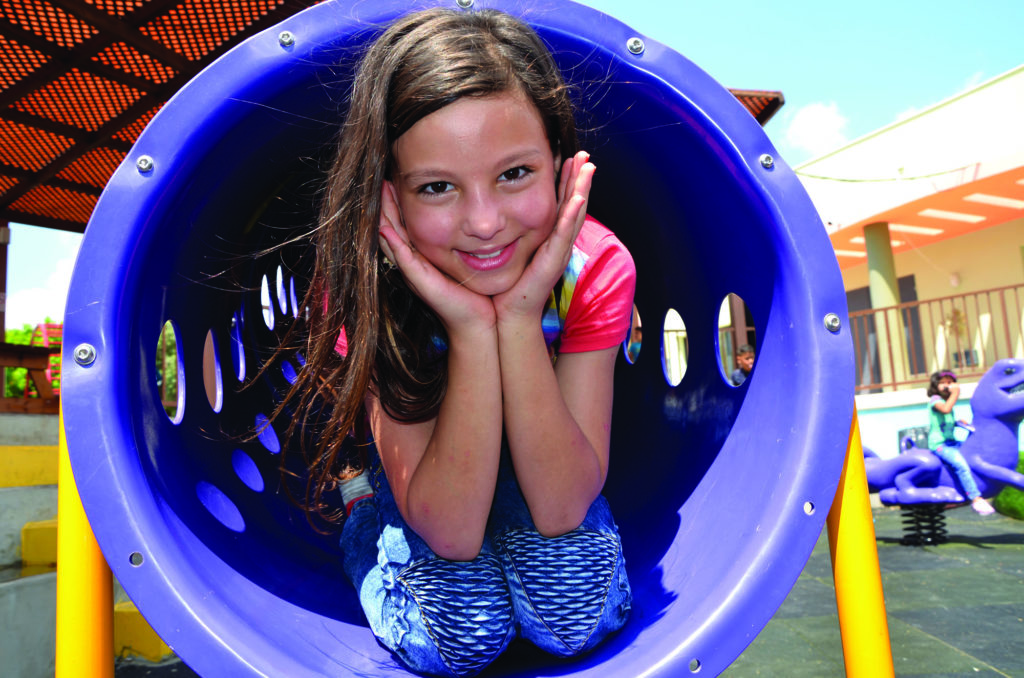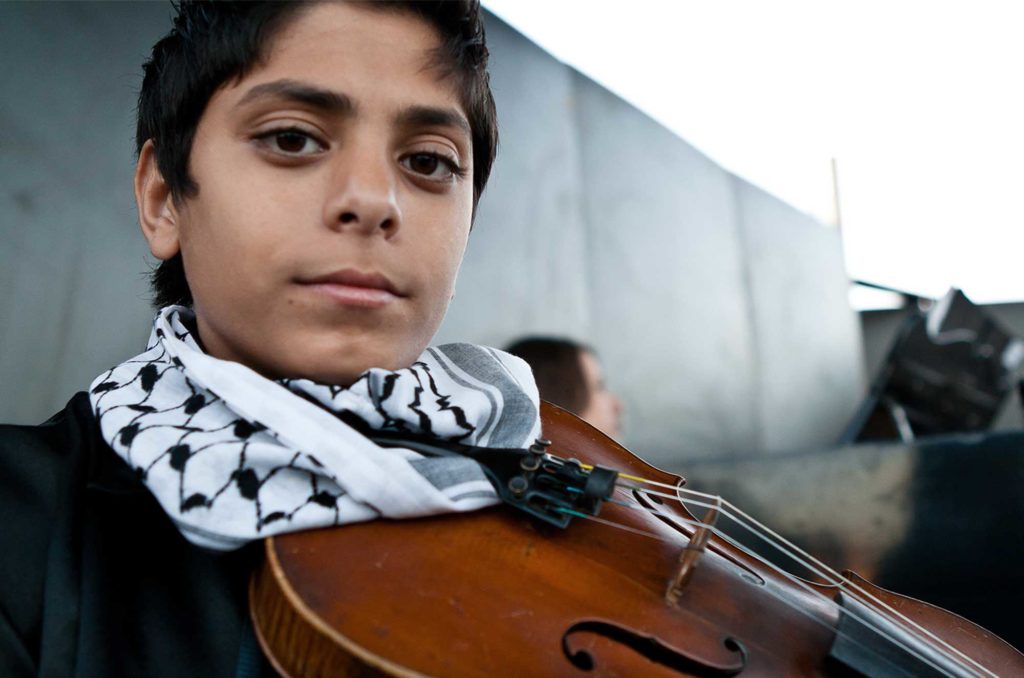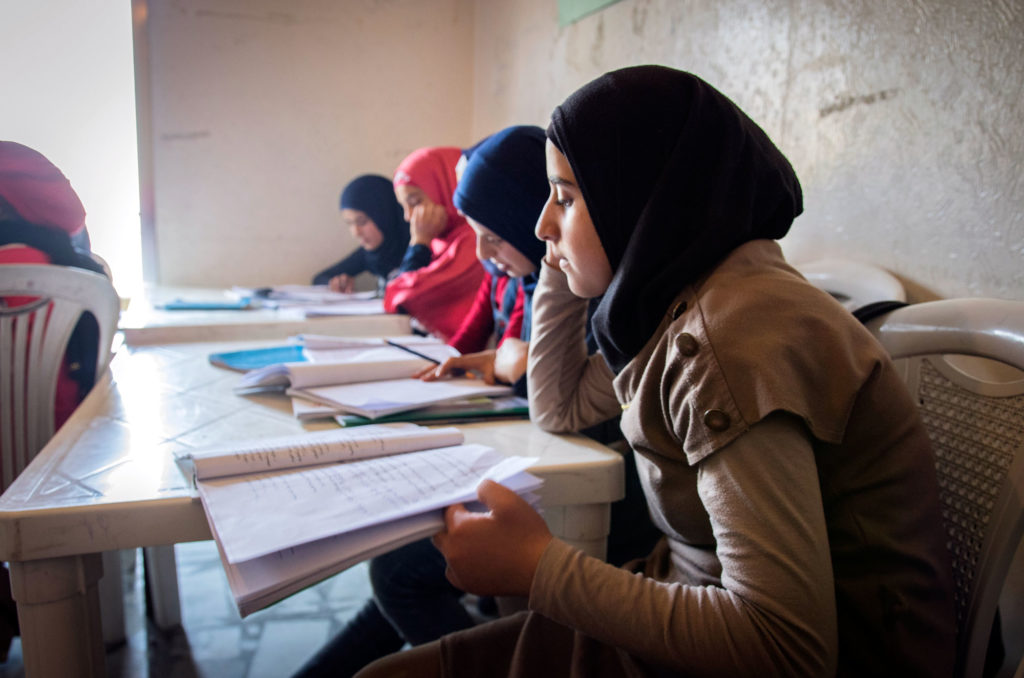Overflowing Sewage and Waste
From polluted beaches and sewage flooding during storms in Gaza to the garbage crisis in Lebanon, a lack of working sewage and sanitation systems poses a dangerous threat to the health of families and the environment.
During the winter in Gaza, septic tanks overflow as sewage mixes with rain, flooding streets and homes. And in the summer, the rancid smell attracts flies and keeps kids from playing outside and mothers from opening their windows in a place where people have no air conditioning. Infection is common due to the pollution. In fact, 26% of diseases in Gaza are related to dirty water with children being the most affected. These challenges are made more difficult because of the lack of adequate drainage and sewage infrastructure throughout Gaza and the West Bank.
In Lebanon, chronic disease is on the rise across the country and especially in refugee camps as heaps of garbage grow due to the economic crisis and collapse of the sanitation sector. Piles of garbage fill public lands and many local communities are forced to resort to burning their trash in toxic open burn pits.
Responding to Flooding, Sewage and Sanitation in Palestine
In Gaza and the West Bank, Anera engineers design and implement sewage systems, waste treatment facilities and storm drainage networks to keep families healthy and neighborhoods clean.
Across Palestine, we connect homes and communities to public sanitation networks and make sure schools and health centers are equipped with clean toilets and washrooms.
Anera’s latest infrastructure improvements were designed to prevent flooding and improve stormwater gullies, wastewater networks, water pumps and water desalination facilities.
In the early 2020s, Anera’s teams of engineers and contracted workers installed new stormwater infrastructure in the Beit Hanoun and Gaza City area of northern Gaza. The new drainage systems prevent dangerous and costly flooding that often happens in the winter. 100 families (564 residents) in Beit Hanoun and at least 100,000 families in Gaza City benefit from the installations. Anera also installed sewage and water infrastructure in Zeitoun, Gaza to end years of flooding as well as connect homes to water for the first time. In conjunction with the infrastructure improvements, Anera conducted twelve public health awareness sessions on water-borne diseases and delivered hygiene kits.
In West Bank towns, we have connected hundreds of families to sewage networks for the first time. Instead of spending their modest incomes on emptying cesspits, Palestinian families are now able to invest that extra income in educating their children or growing their farms. Women who once spent hours every day cleaning their flooding homes now have time to spend with their families, relax or work outside the home.
Responding to Lebanon’s Garbage Crisis and Improving Refugee Camp Sanitation
Anera has developed a community-led approach to address the trash crisis in Lebanon as well as provide local jobs in an emerging sanitation sector.
In Palestinian refugee camps and in other vulnerable communities throughout Lebanon, we spearheaded a community-based intervention in which youths took the lead. Through cleaning and recycling campaigns, training for sanitation staff and the construction of three new waste sorting facilities, Anera helped create a cleaner environment.
Youth-led campaigns educating the public about sorting recyclable materials at home and the distribution of municipal recycling bins are just some of the ways we have responded. The creation of new jobs in sanitation has also been the result of Anera’s construction of waste infrastructure and systems.
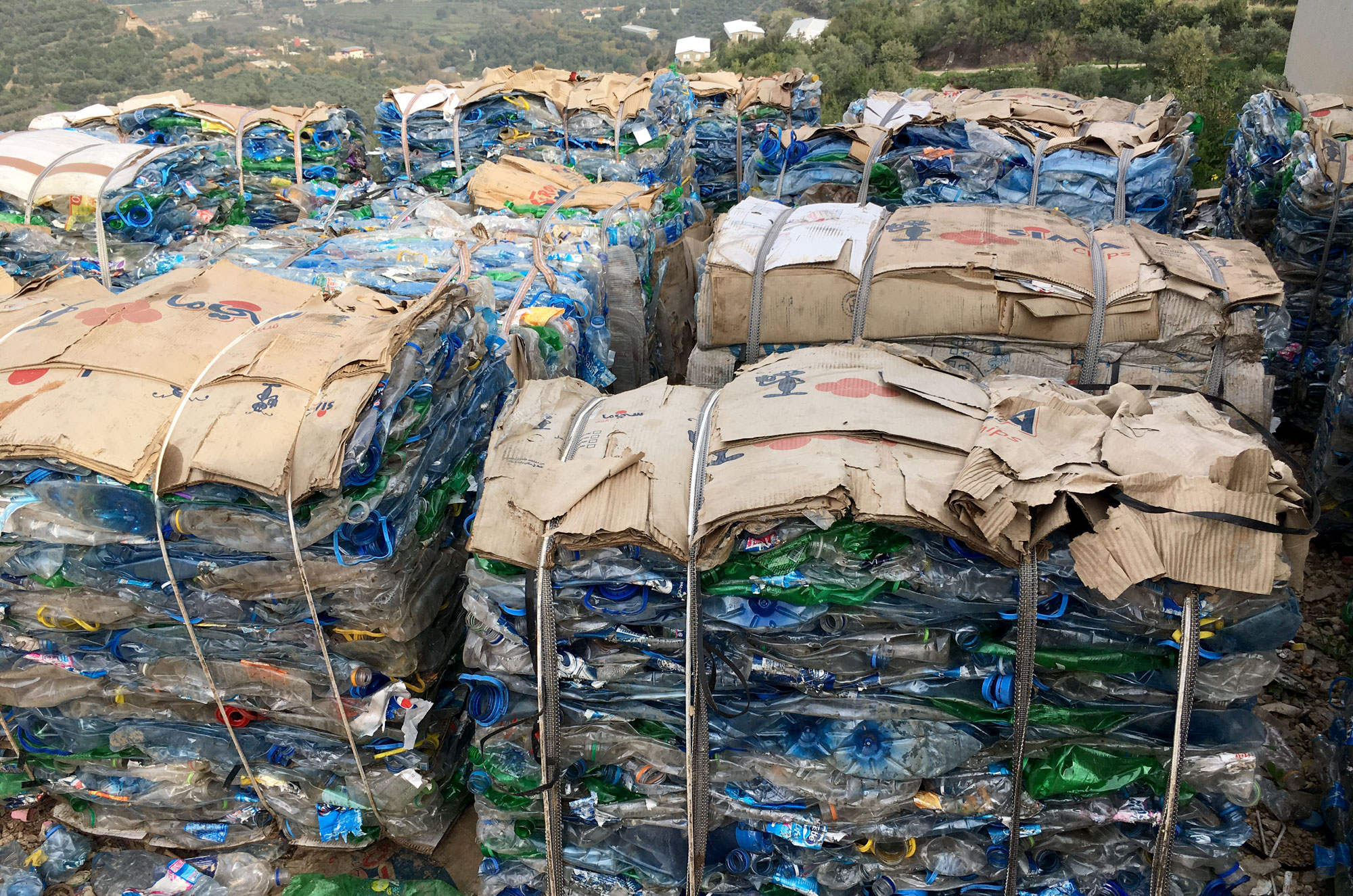

Related Priorities
Give today, change a life forever.
Food insecurity and unemployment are major challenges in the three countries where Anera works.
Since the blockade started in 2006, the economy of Gaza has been stagnating. Add to this intermittent bombing campaigns and a global pandemic and you have a recipe for food insecurity. Eight out of ten Gaza families depend on food aid.
In the West Bank, Israeli settlement expansions, checkpoints, and the separation wall, have been eroding the economy and shrinking employment opportunities for many years.
Lebanon faces immense challenges due to the meltdown of the financial system, the Beirut explosion and the pandemic. The resulting unemployment and financial instability have increased the prevalence of extreme food insecurity among families.
In Jordan, the number of people going hungry has also increased due to the economic challenges the pandemic created.
Farming, even on a very small level, is one way families across Palestine, Lebanon and Jordan can put food on the table and generate income.
Making Land and Rooftops Productive
Anera has more than 40 years of experience in agriculture, helping families make wise use of limited resources to grow the food they and their communities need.
Anera has worked with Palestinian farmers and farming families to establish agricultural cooperatives, build farming terraces, install cisterns and smart irrigation systems, build farm-to-market roads and wholesale produce markets, and plant profitable crops. We also have built or repaired thousands of greenhouses across Palestine.
Our experienced agronomists have, over the years, refined their practices to make better use of water and space – an important consideration in places where both are at a premium. Anera provides families with a system of modified hydroponics called “wicking beds,” which water plants from below rather than above. The beds are in containers that have water reservoirs at their base. They are designed to provide plants with the optimum amount of water needed, without the need to irrigate daily. It's particularly good for arid climates, like the Middle East.
We are now replicating our wicking bed practices in all of the countries where Anera works.
Rooftop Gardens
In Palestine, Lebanon and Jordan, Anera is building rooftop gardens in camps and urban areas. We're helping families who have space they are otherwise not using to grow prolific crops of vegetables, fruits and herbs. Our gardens are atop roofs, and sometimes on the ground. They are enclosed in small greenhouses, which we fill with barrel wicking beds and planted with seedlings that will thrive. Anera agronomists provide extensive training on best practices for tending gardens to keep them fertile after Anera's intervention.
Agricultural Training in Lebanon
Anera has established an accelerated vocational agriculture course to encourage young people in Lebanon to work in the farming sector. The course covers the dos and don’ts of preparing the soil, growing seedlings and building greenhouses. Youth also learn how to divide their growing space and plan for their harvest. Once the crops have been picked, they package the harvest for vulnerable families signed up to receive Anera’s produce baskets.
Installing Greenhouse Gardens: How It Works
-
Select
Identify the neediest, most food insecure families with the best chance to succeed in farming — with women-headed households getting priority.
-
Evaluate and Design
Evaluate all rooftop and yard spaces, making adjustments to garden designs and systems accordingly.
-
Build, Equip & Plant
Build greenhouses tailored to the space and, with the help of the family, prepare the wicking beds and plant seedlings.
-
Train
Provides training on the technical aspects of garden operation and maintenance as well as best practices for optimal productivity and profit.
Anera launched our urban rooftop gardens first in Gaza, Palestine. Because of our success, Anera chose to transfer this experiment to the Nahr El Bared camp in northern Lebanon.
Give today, change a life forever.
The Reality
Vital Infrastructure Destroyed
Political turmoil in Palestine and Lebanon has afflicted communities for decades. Important buildings are often damaged or demolished in periods of violence.
Many communities are poor and lack proper infrastructure, so flooding and other natural disasters can also have devastating effects. Since 2008, Gaza has seen six major escalations in the conflict, interspersed with sporadic bombing campaigns. The effects of these wars can still be seen and felt in the many destroyed and damaged homes, schools, businesses and farms. Gaza reconstruction has been slow because of restrictions on moving construction materials through Gaza’s heavily restricted borders.
From time to time, bouts of violence flare up in the Palestinian refugee camps of Lebanon, putting civilian families in the crossfire. When clashes erupt, many Palestinian and Syrian refugees find themselves forced to flee again. In 2007, for example, many buildings in Nahr El Bared camp were completely destroyed, and residents were left to pick up the pieces of their lives. In 2020, the Beirut port explosion severely damaged entire neighborhoods of Beirut, killed more than 200 people and displaced some 300,000 from their homes.
Anera's Response
Post Emergency Reconstruction
When a humanitarian crisis strikes in Lebanon, Jordan or Palestine (East Jerusalem, Gaza and the West Bank), Anera is there so families can get back on their feet.
When the fighting ends, attention often drifts elsewhere, but needs persist long after bombs stop falling. Following the bombardments of Gaza, Anera’s post-conflict reconstruction efforts help restore water networks, farms and preschools.
In the aftermath of armed conflicts in Lebanon’s refugee camps, Anera helps residents recover by rebuilding and equipping community centers, clinics and public spaces. We also install water tanks on homes to ensure that thousands of residents have safe and reliable access to clean water—a basic necessity that often vanishes during emergencies.
Following the Beirut explosion, Anera organized youth volunteers and students from our vocational training courses to help clean up streets and rehabilitate 1,100+ homes and businesses throughout the city.
Anera also works to prevent the need for reconstruction. This means that we put reliable infrastructure into place. In communities across the West Bank, Anera has constructed water drainage systems that redirect rainwater away from population centers, and installed water networks. In just four years, from 2019 to 2023, Anera connected 154,931 Palestinian homes in Gaza to reliable sources of water, upgrading wells and water networks in 32 communities. Our engineers also completed urgent repairs of 14 wastewater networks, affecting 47,586 Palestinians in 18 Gaza communities.
How It Works
-
Assessment
Assess damage from the emergency.
-
Identification
Identify primary needs of the community and local partners to work with.
-
Planning
Plan sustainable projects that will deliver and last.
-
Reconstruction
Reconstruct and rehabilitate schools, hospitals, community centers, water networks and other damaged infrastructure.
-
Observation
See generations of positive effects—from children educated in rebuilt schools, to families making a living by farming restored fields.
The explosion at the Port of Beirut in the capital city of Lebanon damaged over 62,000 residential spaces and 20,000 business buildings. With support from Anera's community, we are able to rebuild homes and buildings that were damaged.
Give today, change a life forever.
Crises Can Happen at Anytime
In a region where conflict and crises can happen at any time, Anera is always ready to step in and deliver humanitarian relief, easing people’s suffering and helping them return to their normal lives.
Families living in poverty have few resources available to confront emergency situations like flooding and war. In a time of emergency, the basic necessities of life like food, shelter and water disappear quickly. And when communities are closed off, like Gaza or the refugee camps of Lebanon, delivering humanitarian aid is even more challenging.
Thanks to the support of our donors, Anera currently maintains nine offices and 110 staff members in the Middle East.
Gaza
Densely populated Gaza has suffered a blockade since 2007 that limits the flow of goods and people into and out of the region. As a result, poverty, poor sanitation and unreliable water and power infrastructure are endemic problems. Gaza is frequently subjected to missile strikes, shelling and other military attacks that cause casualties and damage healthcare, water, and other infrastructure, especially during conflict escalations.
West Bank
Hundreds of thousands of Palestinian residents of the West Bank, including East Jerusalem, require humanitarian assistance. Many face food insecurity and difficulty accessing proper healthcare. And the decades-long occupation continues to infringe on access to basic housing and livelihoods.
Lebanon
Lebanon is home to more than 1 million Palestinian and Syrian refugees, many of whom lack access to necessities like adequate housing, education and employment opportunities. Additionally, the recent collapse of the Lebanese financial system has thrown millions of Lebanese people into poverty, leaving many in need of humanitarian assistance.
Jordan
Jordan hosts one of the largest populations of refugees in the world. Over one million Syrians reside in Jordan, adding to the Palestinian refugee population that the country already hosts. Food insecurity affects hundreds of thousands of people in Jordan. Many refugees live in poverty. Access to essential services like mental health care is often limited for vulnerable populations.
Quick and Flexible Response
Our staff and volunteers in Gaza, the West Bank, Lebanon and Jordan come from the communities they serve. As a result, we're able to draw from a wealth of highly specific local and cultural expertise, making us more agile and better equipped to respond quickly and effectively. Whether it's with relief for Lebanon refugees or humanitarian aid to Gaza, we strive to make the support of our donors deliver the greatest possible impact.
Anera has been delivering humanitarian relief for refugees and local communities since our founding in 1968 thanks to the help of supporters from all over the world.
To combat food insecurity, Anera delivers food aid to the families most in-need, particularly during religious holidays and at moments of acute crisis. During times of conflict escalation, Anera mobilizes our extensive network of medical donation partners to deliver urgent medical aid to hospitals and clinics.
Anera’s longstanding on-the-ground presence in Gaza allows us to improve residents' lives by bringing in medical supplies and supporting healthcare facilities. In the wake of bombings, we deliver hot meals, food vouchers and other emergency supplies for displaced and vulnerable families.
Our work in the West Bank began in the immediate aftermath of the 1967 war as we worked to meet the needs of those displaced by the fighting. Since then, the Israeli occupation has endured, along with the ever-present potential for violence generated by the conflict. Anera continues to deliver humanitarian assistance to vulnerable communities, particularly during times of crisis.
In Lebanon, Anera works directly with all communities to provide emergency humanitarian relief and long-term support through job programs, language training, health and hygiene initiatives and more. During the cold and wet winter months, we partner with our vocational sewing course students to produce blankets and warm clothing for refugees living in tented settlements in the mountains.
After the explosion at the Beirut port in 2020, Anera immediately acted to provide emergency support to overwhelmed medical centers. We adapted our programs to include longer term responses to the destruction, restoring the homes and apartments of vulnerable families who saw their housing destroyed in the 2020 explosion in Beirut.
And in Jordan, Anera’s medical donations program delivers vital medical aid to refugee camps. During Ramadan, we also ensure food-insecure families are able to put food on the table to break the fast together.
108,400
hot meals in Gaza
...delivered for six weeks to thousands of displaced families and others affected by the bombings of Gaza in May 2021.
2,031
youths in Lebanon
...paid through our vocational courses to produce washable sanitary pads, rehabilitate homes, sew winter clothing and provide other aid.
4,500
meals in Jordan
...provided through a combination of door-to-door distributions and iftar gatherings.
Our staff managing medical aid donations have a tried-and-true system for getting families and communities what they need most: medicine, food packages, clothes, blankets, hygiene supplies, and more. They deliver millions of dollars of humanitarian relief to families and medicine to charitable clinics and hospitals.
In 2021 and 2022, Anera’s humanitarian relief efforts in Gaza helped replenish medicine supplies at over-taxed hospitals and ensure that families had critically needed hygiene kits, water and food even while bombs fell. In Lebanon, we help ease the burden for thousands of vulnerable Lebanese, Palestinian and Syrian refugees that fled Syria’s conflict. Our emergency response and the speed of our assistance efforts rely heavily on the generosity of our supporters.
“We lost everything, including our clothing and furniture...and our stove. We couldn’t even salvage one single cooking pot. The entire kitchen is gone.”
— The father of 9-year-old Islam (pictured) describes the damage his family’s home sustained in May 2021. They got hot meals from Anera while they rebuilt their lives.
Give today, change a life forever.
The Reality
Violence, isolation and extreme poverty create difficult conditions in Palestine and Lebanon.
In Gaza, children under the age of 10 have already survived four wars and major bombing campaigns and grow up amid destroyed buildings, open sewage and a polluted environment. In the West Bank communities are mentally scarred by decades of violence and a shrinking homeland. Families struggling to survive in economically devastated Lebanon face daily stresses and hardships. And Syrian and Palestinian refugees living in Lebanon confront an array of restrictions limiting their ability to work and own property.
Many communities in both Palestine and Lebanon face high unemployment, poor living conditions, inequality and politically volatile environments. These experiences have significant effects on peoples’ mental health.
Children caught in the crossfire are especially vulnerable to suffering the psychological effects of their difficult circumstances. The earliest years of life are the most critical for development, and the traumas some children experience have a resounding impact on how they grow into adults. There are also few spaces for children in Palestine and Lebanon to experience a normal childhood – to kick a ball, play in a park or sing songs with their friends.
Anera's Response
There are many ways Anera works to improve mental health in the communities where we work. From providing group and individual therapy sessions, engaging youth in physical activity and giving them creative outlets for self-expression, to providing vital mental health medication.
Group and Individual Therapy
In recent years, Anera has worked to provide individual and group therapy to some of the most vulnerable groups in Palestine and Lebanon. In the summer of 2022, Anera provided 100 women with group and individual sessions, field visits to homes and personalized sessions with families and couples for psychological relief. This was in response to the heavy impact on mental health in Gaza following an escalation of violence.
“The project provided psychological and social support to women affected, especially after the Israeli offensive on Gaza in August [2022], including their children from five to eight years of age.” — Psychologist Laila Abu Aisha, a field monitor for Anera mental health support in Jabalia, northern Gaza.
In Lebanon, Anera provided emergency psychosocial support in the form of online therapy sessions for youth following the Beirut port explosion in 2020 and the effects of COVID-19 isolation.
Physical Activity, the Arts and Social Connections
Sports and exercise, as well as music and the arts, offer ways for youth to express themselves and vent frustrations. Anera develops sports programs and community-sports facilities in Palestine and Lebanon to give youth an outlet for the traumas they’ve experienced.
In Gaza, Anera provides summer camps for children with positive physical and creative outlets. For young people who have been out of school for years – like the thousands of refugee youth or youth forced to provide for families in Lebanon – getting back in the classroom can help create a sense of purpose in the midst of extreme hardship.
Likewise, children can relieve trauma and stress through musical and artistic expression. Anera has organized creative activities in Palestine and Lebanon to offer an artistic release of tensions that can build up under difficult living conditions. Expressive arts are a key part of Anera’s early childhood development program. Often in the wake of tragedies, like the bombardments of Gaza in 2021 and 2022, Anera arranges creative activities for preschoolers to help them cope and recover.
Providing Mental Health Medicine
Sometimes the mental health challenges of individuals in Palestine and Lebanon require specialized medications that are difficult to obtain locally. Anera steps in to provide donated psychiatric medications to hospitals, community health centers and clinics throughout Gaza, the West Bank and Lebanon. The challenges of living as a refugee or under occupation has profound psychological effects. A little medicine can make a big difference. Every year, Anera ships donated medicines to battle illnesses like depression and anxiety.
Children in Gaza Need to Play!
Activities that promote joy and learning foster healthy childhoods! Our team in Gaza recently took students on three fun and engaging field trips. These students also participate in Anera's Farms to Fasool program which provides locally sourced nutritional meals to preschoolers.
Give today, change a life forever.
Chronic Shortages
In all places where Anera works, good healthcare and access to vital medicines are a constant struggle for vulnerable patients and communities. In Palestine, restrictions on movement and imports, imposed by years of occupation, challenge the medical system to provide up-to-date care. Hospitals and clinics suffer chronic shortages of critical medicines to respond to their patients’ needs.
The blockade of Gaza since 2007 has also severely limited the import of critical humanitarian goods. Children and the elderly are most vulnerable to illness and chronic disease but often cannot get the medicines they need because of the shortage of supplies.
In Lebanon, the on-going economic crisis and COVID-19 pandemic severely degraded the quality of healthcare for all. Lebanese communities and Palestinian and Syrian refugees alike face many challenges, from high unemployment and poor housing conditions to inadequate health and education services. Vulnerable host and refugee families in Lebanon are in ongoing need of humanitarian aid and medicines.
Delivering Medical Aid for More Than 50 Years
The medical relief program started in 1970, when Anera merged with American Middle East Rehabilitation, an organization founded to send relief donations to the region.
In the early years, Anera delivered one or two shipments annually, valued in the tens of thousands of dollars. Today, Anera distributes millions of dollars worth of medicines for chronic conditions, hospital equipment, wheelchairs, over-the-counter drugs, and health care supplies that would not otherwise be available in the communities where they are needed the most. Our deliveries support hospitals, clinics, schools, and community centers struggling to meet the needs of underprivileged families.
Decades of building relationships combined with intimate knowledge of international shipping logistics ensures that life-saving supplies are quickly put to use. Anera’s knowledgeable staff coordinate shipments through every step of the journey, so that no materials are wasted and partners receive what they really need – not what just happens to be available.
In 2022 alone, we delivered $76.6 million worth of medicines and medical supplies to healthcare facilities in Palestine, Lebanon and Jordan. We also delivered relief items like hygiene kits, school kits, quilts and shoes.
How It Works
-
Get the Right Medicines
Circulate needs lists to medical supply donors and select proposed donations appropriately.
-
Ship
Send donations by sea or air, expediting port and customs clearances.
-
Distribute
Conduct inventory of shipment at Anera warehouse and distribute to local health facilities.
-
Follow up
Do follow-up visits with health facilities for quality control and gathering new needs lists.
Since 1968, Anera has delivered more than $600 million worth of medicines and other health and relief supplies to Palestine, Lebanon, and Jordan.
Give today, change a life forever.
Healthcare Facilities in Disrepair
The problems at clinics and hospitals in Palestine, Lebanon and Jordan are widespread, from peeling paint and water damage to outdated equipment and a shortage of doctors.
These factors diminish the quality of care that healthcare centers can provide. With limited equipment and personnel, people in need of care often have to wait in long lines or do without treatment altogether. These problems have life and death implications for the community members served.
Overcrowding, a lack of funds, deteriorating infrastructure and political instability are some of the main issues that affect the quality of healthcare facilities in Palestine (Gaza and the West Bank), Lebanon and Jordan. Bombings and the violence of war often leave behind damaged healthcare facilities.
Improved Conditions and Capacity
With help from people like you, Anera builds and upgrades clinics and hospitals, improving healthcare services for impoverished communities and people with disabilities.
Anera’s infrastructure work also has improved livelihoods for thousands of Palestinians and other local community members. The areas where we work tend to have high unemployment rates, and our projects constructing healthcare facilities help feed and support thousands of families seeking much-needed resources.
Anera implements infrastructure projects in Palestine, Jordan and Lebanon that build, upgrade, and expand hospitals and other health facilities. Over the past 15 years, we have built or upgraded scores of hospitals and clinics in Palestine and Lebanon, including building a brand new clinic in Beit Lahia, Gaza, upgrading the emergency rooms in Haifa Hospital in Burj El Barajneh, Lebanon, and installing a new elevator at a healthcare clinic in Jerash camp in Jordan.
Anera is also increasing access to affordable and sustainable energy and water by installing solar panels on health centers and by providing water filtration systems, also usually run on solar. In recent years, we have installed solar panels on 26 healthcare centers across Gaza and Lebanon and 12 water desalination systems on healthcare centers in Gaza, where clean water is scarce.
We also provide technical guidance and medical supplies that support the work that healthcare facilities do while easing their financial burdens. The money that health administrators don't need to spend on medicine, supplies or electricity/water bills can instead be directed to providing the best quality care for their patients.
Give today, change a life forever.
Basic Healthcare is Hard to Access
Poverty and inadequate facilities are just two of the many factors that prevent refugees and families in Palestine, Lebanon and Jordan from accessing basic healthcare.
In times of crisis, such as the bombings of Gaza and Lebanon’s on-going economic and political collapse, adequate healthcare is can become inaccessible. Communities lose out on healthcare when there are no hospitals or clinics, when medicines are prohibitively expensive, and when they are not prepared or educated to care for themselves under harsh living conditions.
Overcrowded, impoverished communities without sanitation facilities are breeding grounds for parasites, infections, and communicable diseases. Some of these health issues can develop into more serious conditions, like malnutrition or liver and intestinal damage.
Treatment and Awareness
Anera makes healthcare accessible to refugees and families in Palestine, Lebanon and Jordan using a multifaceted approach.
We construct and rehabilitate hospitals and clinics, ensuring the physical capacity for healthcare in vulnerable communities. One of our major interventions is the installation of solar panels on health facilities in Lebanon and Gaza. The solar panels make use of an abundant resource – the sun – to ensure operations continue during frequent power outages. They also save money on electricity and fuel.
In Gaza, we are installing reverse osmosis desalinization systems on health facilities so that medical machinery runs better and patients have access to safe, clean water at the tap.
Our medical donations program makes medicine available for free to families who cannot afford it. At times, the donated medicine offers life-saving treatment for chronic diseases. Anera also recognizes that the key to sustainably healthy communities is proper health education, so health awareness sessions are a cornerstone of our health programs.
Chronic disease medicines are essential for many in Lebanon. Unfortunately, medicine and especially chronic disease medicine is widely unavailable in Lebanon due to the ongoing economic and political crises.
Give today, change a life forever.
Poverty and Conflict Make Good Health Difficult
In refugee camps and vulnerable communities in Palestine, Lebanon and Jordan families often have limited access to basic necessities for health and hygiene.
Families living on low wages, or none at all, can’t afford essential items like toothbrushes and soap.
In the crowded Syrian tent settlements of Lebanon, the average tent holds five to 20 people. Communicable diseases and parasites spread rapidly in these living conditions. Many communities, such as those in impoverished neighborhoods of Gaza, lack access to clean water and sewage systems. Bathing and even washing hands can be a struggle. A lack of proper sewage systems leads to polluted public areas where infectious diseases thrive.
Families deserve to be equipped with the knowledge they need to stay healthy under challenging circumstances. Anera's training and education work helps communities rein in the spread of germs and disease.
A Little Help Goes a Long Way
Anera is promoting the message of good health through interactive, hands-on training sessions.
Together with people like you, we’re training healthcare professionals and community volunteers. We’re teaching healthy habits to children and administering programs that help parents identify symptoms and treatment options for various diseases. We’re also distributing generous donations of healthcare and hygiene items.
During the COVID-19 pandemic, Anera's health education materials and activities emphasized preventing the spread of coronavirus, debunking myths and promoting vaccinations.
Anera addresses the topics that are most relevant to youth from refugee and host communities, like amphetamine abuse and lice infestation. Our health volunteers teach communities about the importance of rational use of medicine and screening for intestinal parasites. And where sewage and dirty water are issues, as in Gaza, Anera organizes educational sessions on personal hygiene and water-borne diseases.
Together, we’re building healthy communities through public health education initiatives at schools and community centers so families can learn proper hygiene and healthy eating habits.
VIDEO
Anera’s awareness program helps girls take better control of their own health needs.
Give today, change a life forever.
Disadvantaged Childhoods
Palestinian children suffer from many disadvantages that get in the way of their development.
No child should experience trauma, but the impact of living under continuous occupation and violence disastrously affects the mental wellbeing of children in Palestine who have never experienced any other reality. Four out of five children living in Gaza reported experiencing depression, grief, and fear.
Despite more global awareness about the importance of early childhood development to cognitive, social and emotional growth, only one-third of all Palestinian four and five year-olds in the West Bank and Gaza are enrolled in preschool.
Due to the tense and often violent surroundings Palestinian children are forced into from birth, quality early childhood development is needed to give children a healthy start.
Holistic Early Childhood Development in Palestine Preschools
Anera’s work in early childhood development in Palestine is built on a long-term, holistic, and sustainable model that combines physical infrastructure improvements in schools with comprehensive professional development trainings for teachers.
Anera established Right Start! — a comprehensive early childhood development program — in partnership with government ministries, non-profits, and training institutions. Right Start! is investing in key areas, including upgrades to preschool infrastructure, teacher development, improved learning materials, and community outreach. The program also addresses wider strategic issues by supporting the development of a national early childhood development strategy and policy.
Right Start takes a holistic approach to early childhood development. A key to building a vibrant, generous society is providing children the tools for critical thinking, tolerance and understanding, as well as nurturing respect for our differences and the basic rights of others. Our program incorporates creative elements, such as art, drama and play to encourage children to release tensions and emotions provoked by the conflict surrounding them.
Anera also provides fun and educational summer camps for preschool children in Gaza. These camps allow kids to escape the harsh realities of life and express their emotions in a safe environment. The staff use arts and crafts as psychosocial support for the children.
In partnership with other NGOs, Anera developed the national kindergarten curriculum launched by the Ministry in October 2017. The Ministry disseminated the curriculum to all (2,000+) kindergartens in the West Bank and Gaza.
Anera has also updated preschools in four of the 12 Palestinian refugee camps in Lebanon.
How It Works
-
Teacher Training
Teachers take in-service training courses to learn techniques for making their classrooms more active and child-centered. Mentorships help teachers as they put to practice their new skills.
-
School Builds and Renovations
School and equipment are upgraded to make learning spaces more child-friendly, stimulating and safe. Anera builds new schools and renovates existing structures and installs bathrooms, easy-to-access water fountains, reading corners, and playgrounds with sun shades.
-
Let's Read
Through Anera’s Hayya Naqra (Let’s Read) program, we instill a love of reading in children, teachers and parents. We provide quality materials and create special reading spaces in classrooms and community centers.
-
Expressive Arts
Music, dance, drama, photography, fine art, storytelling and handicrafts are used to stimulate brain development and active learning. -
Positive Parenting
Anera's early childhood development program extends beyond the preschool. We train parents in positive parenting techniques and encourage them to get more involved in their child's education from an early age.
-
Child Health
Anera's awareness sessions for families help increase their understanding of childhood nutrition, health and development. We also treat preschoolers for lice and parasites and deliver items like boots and shoes.

